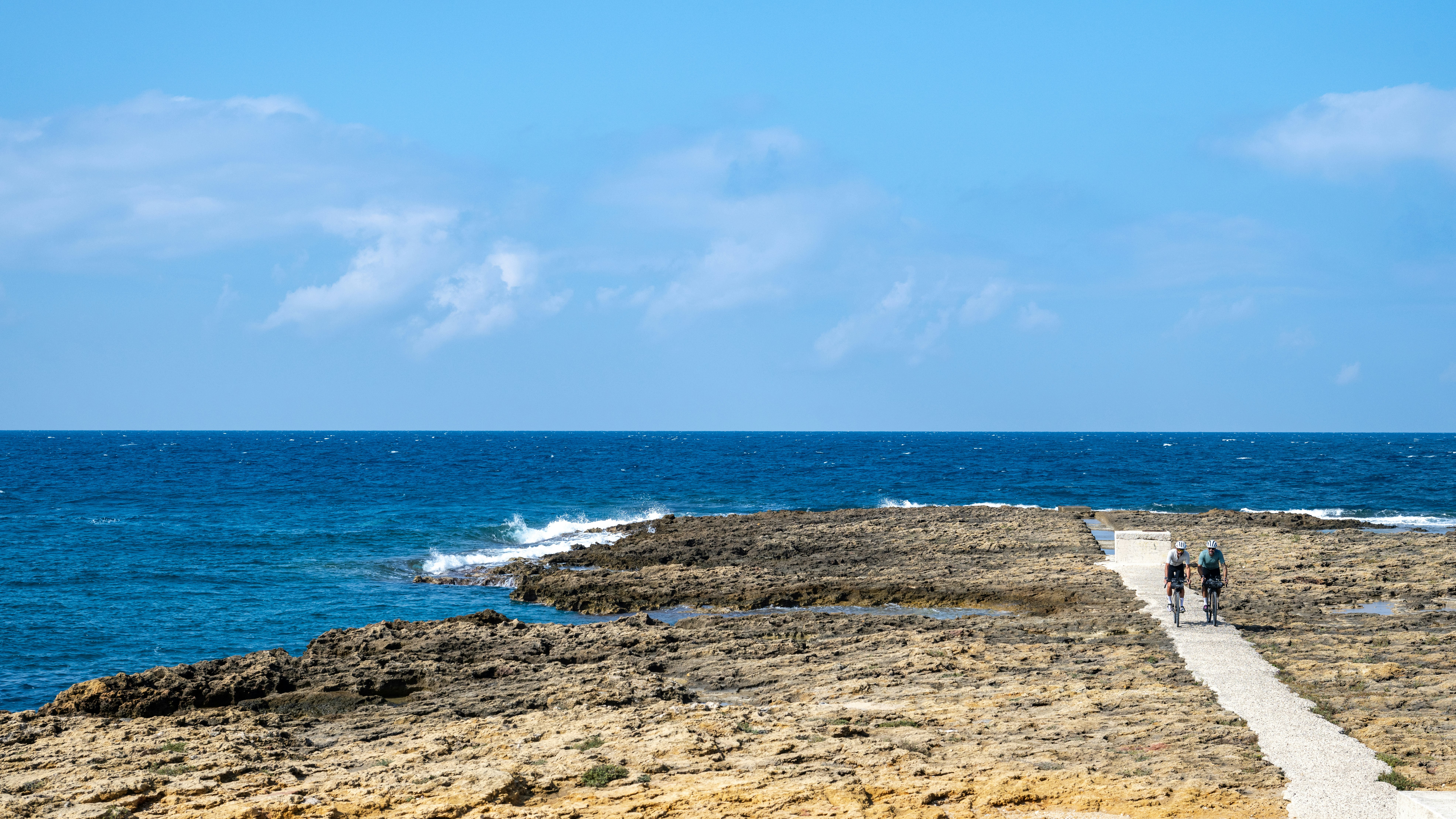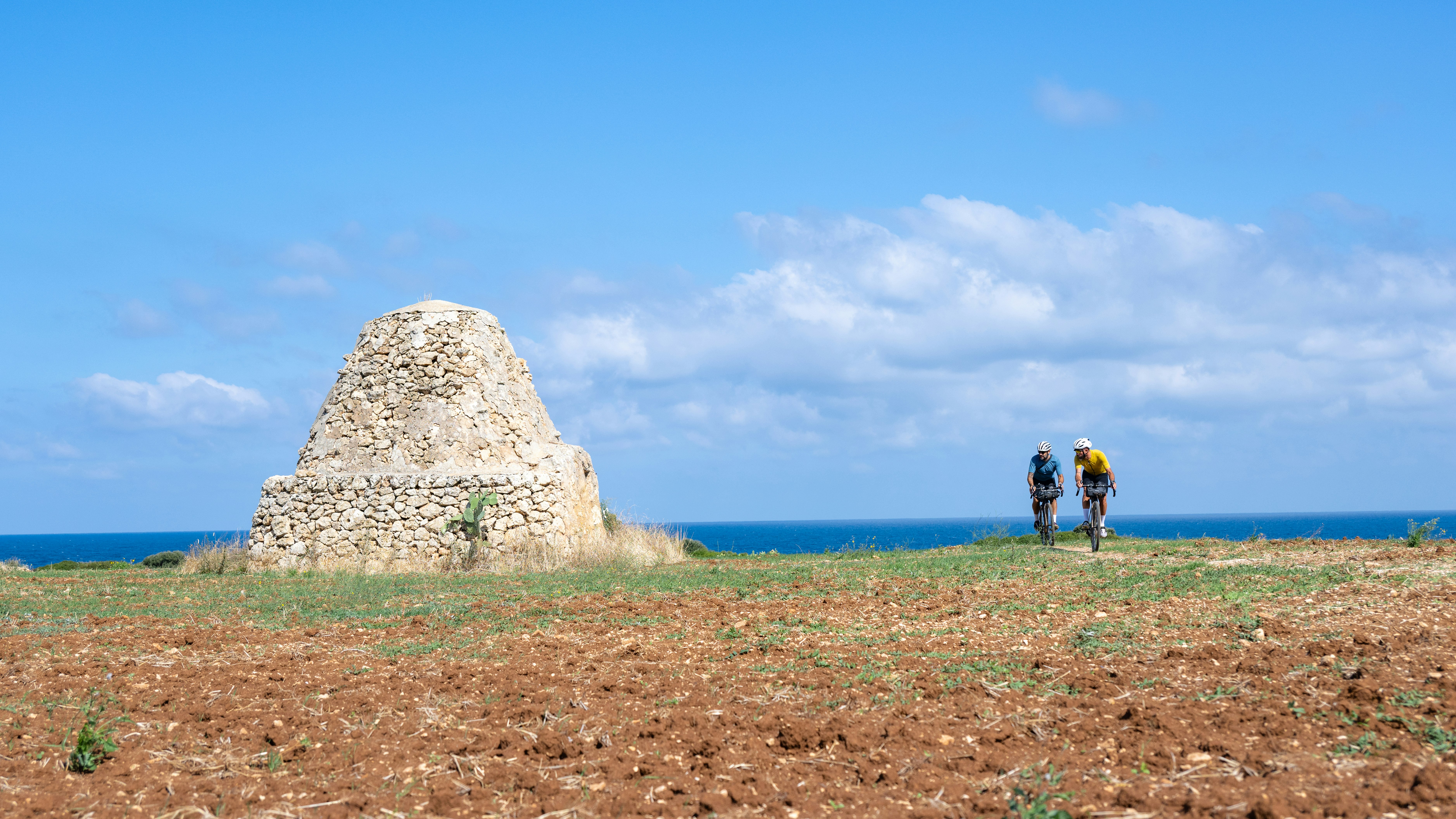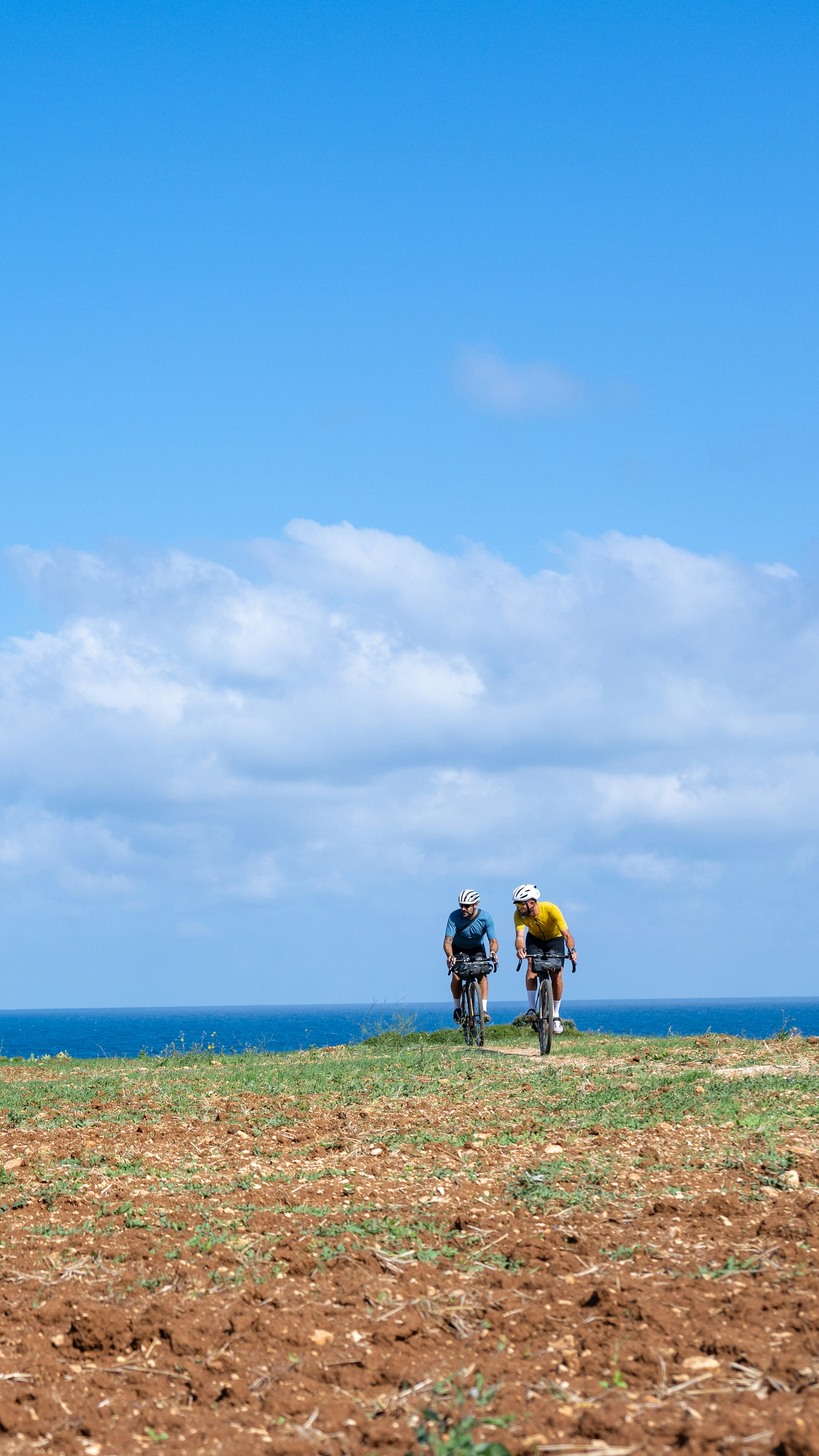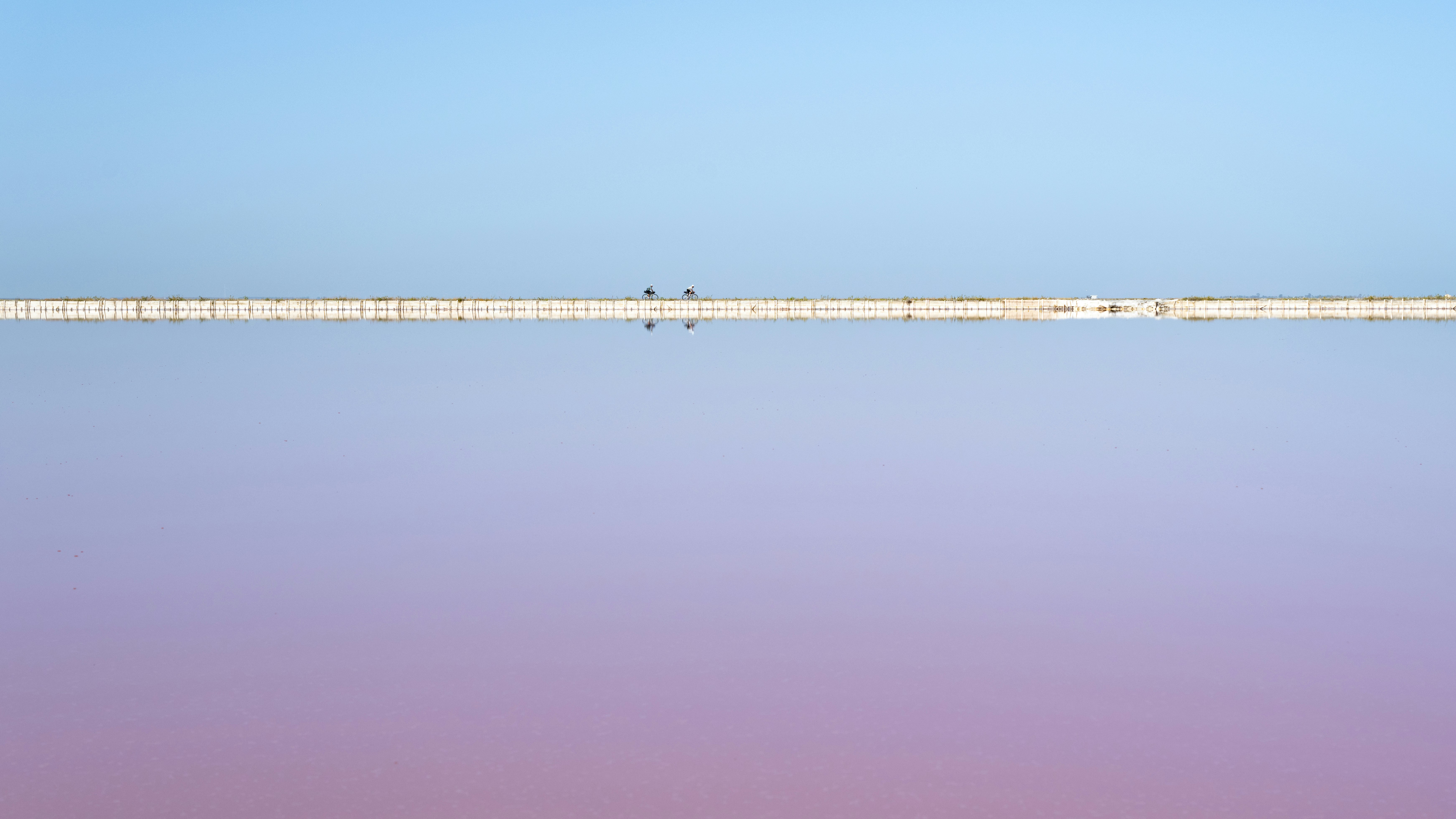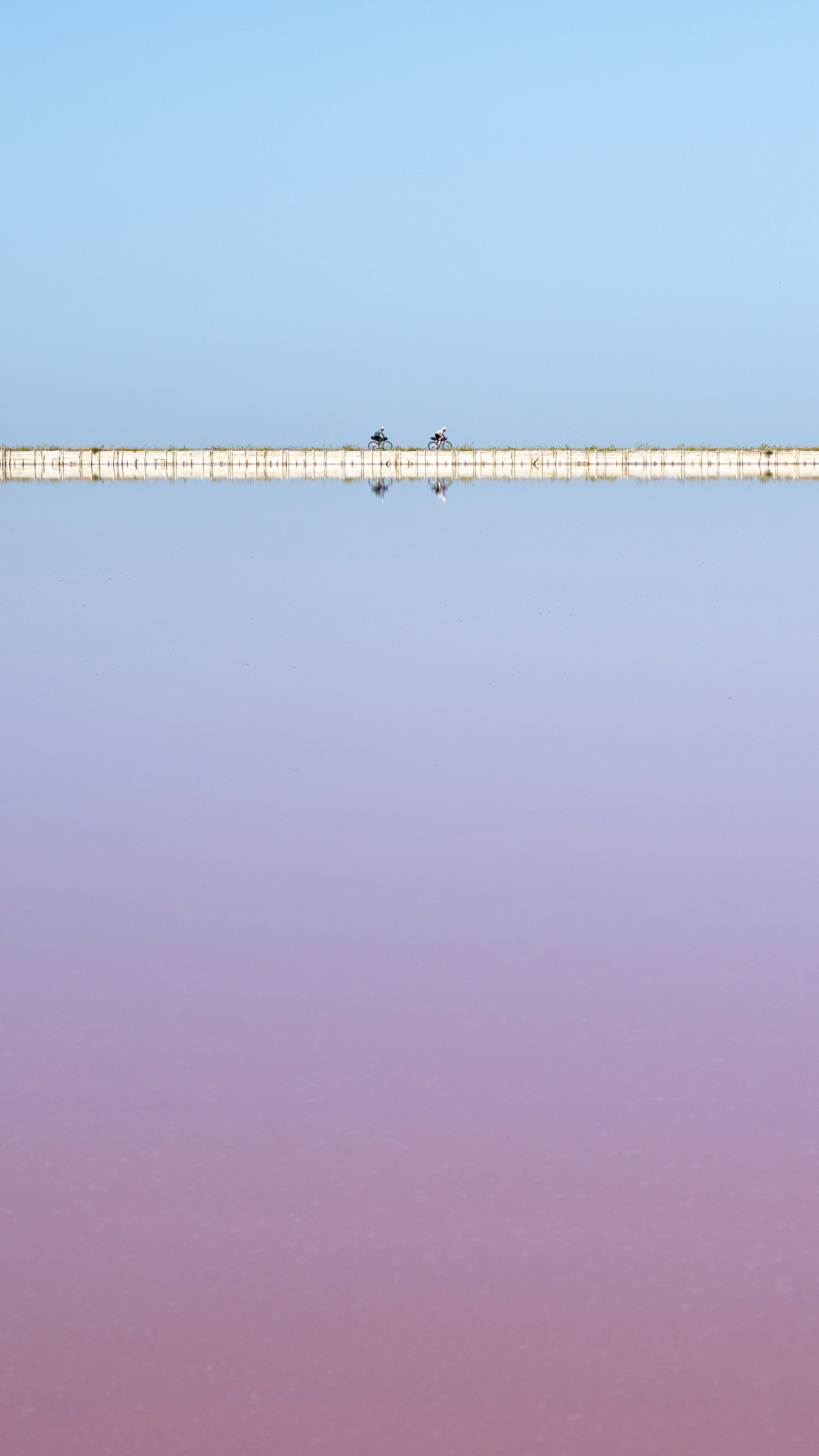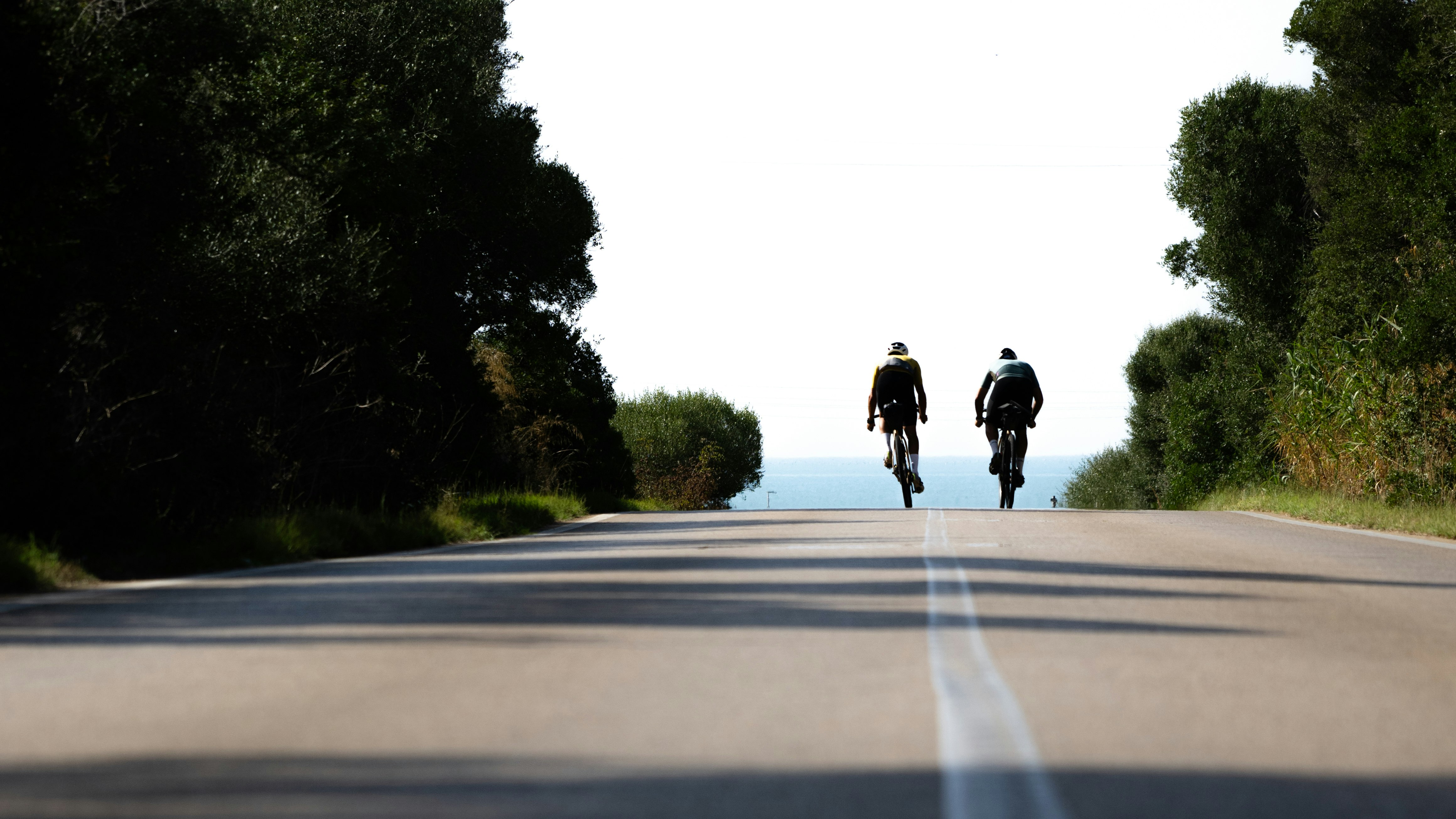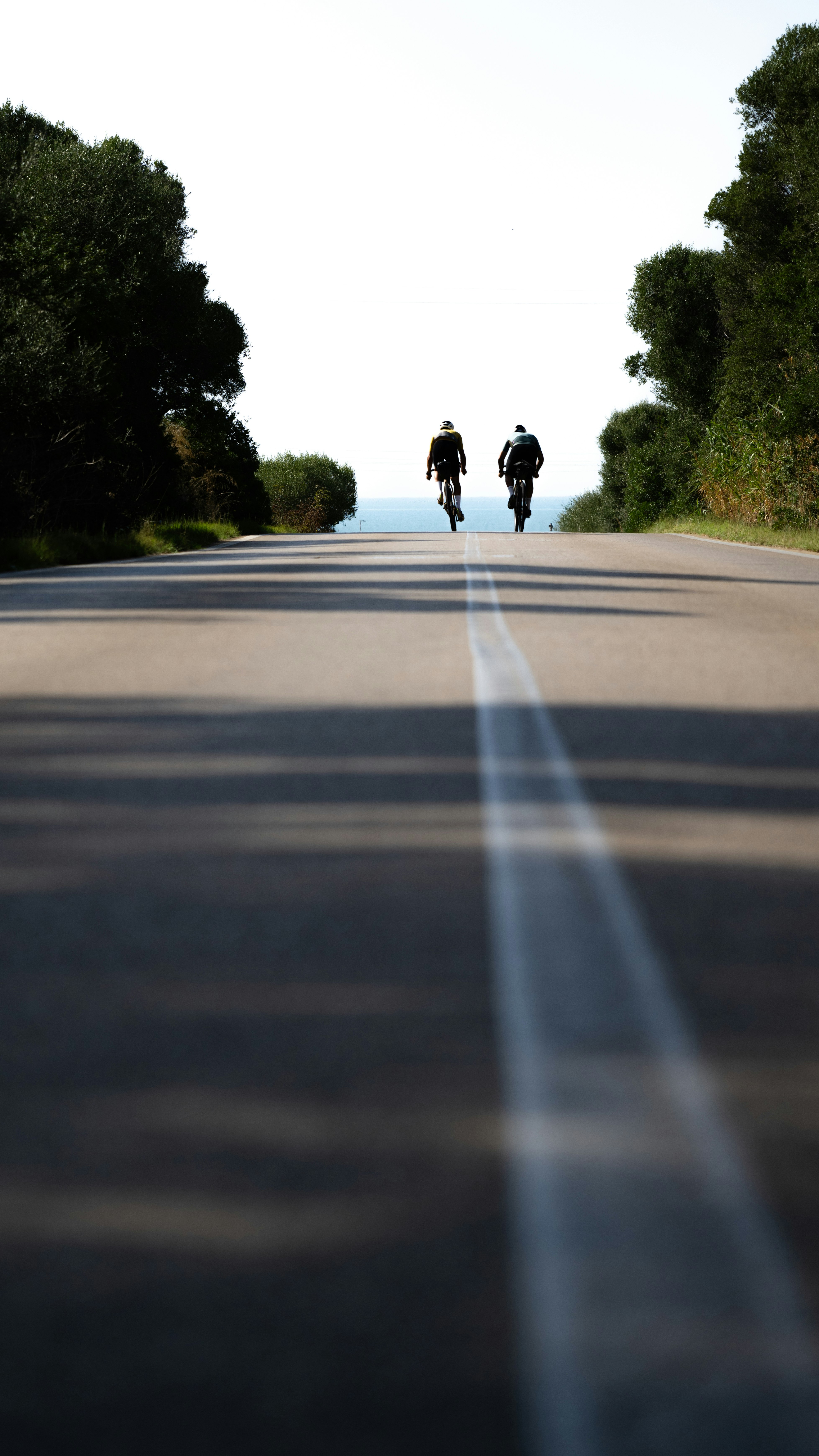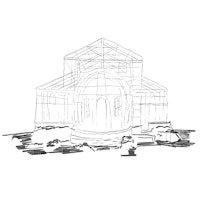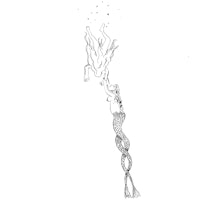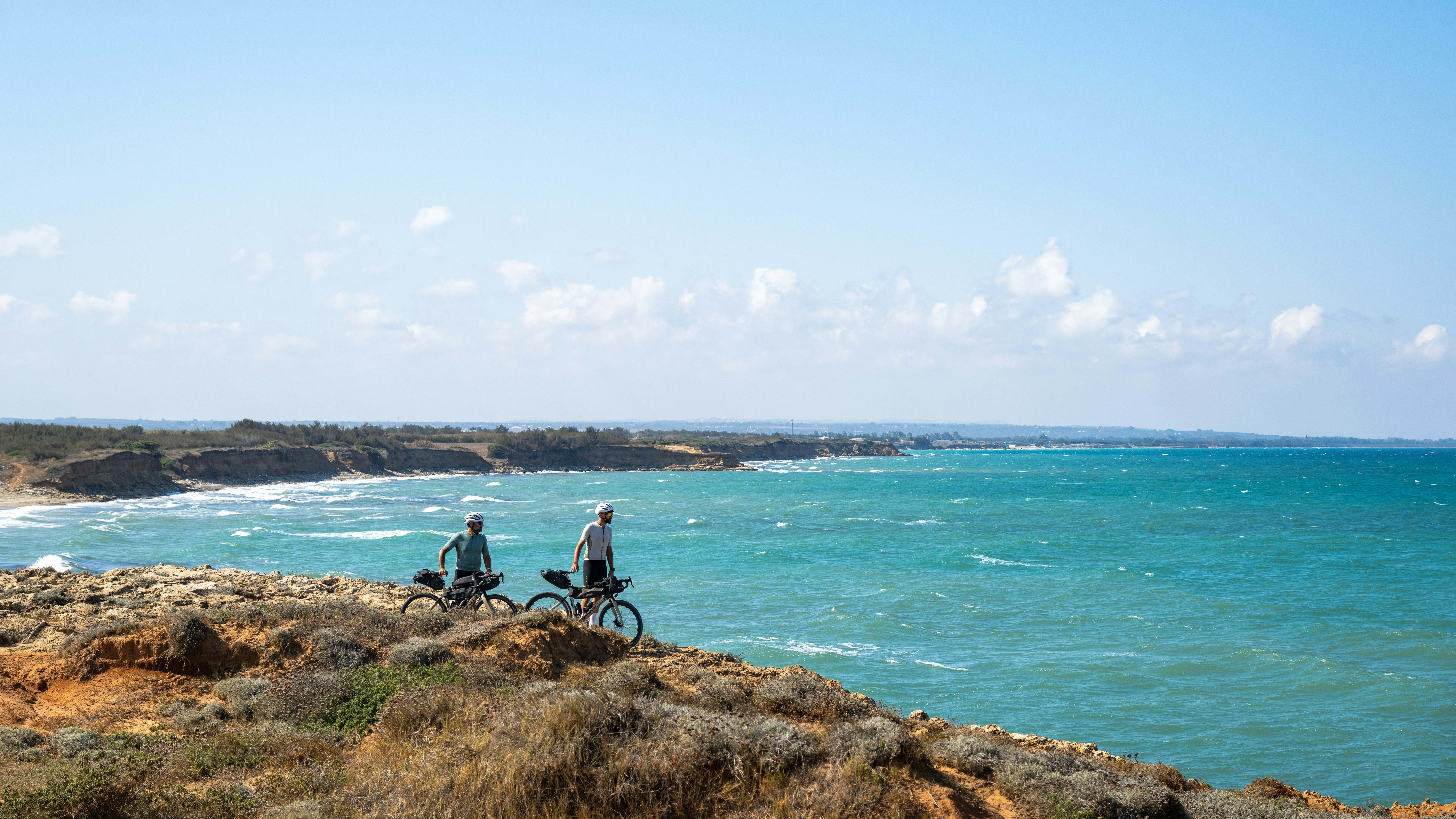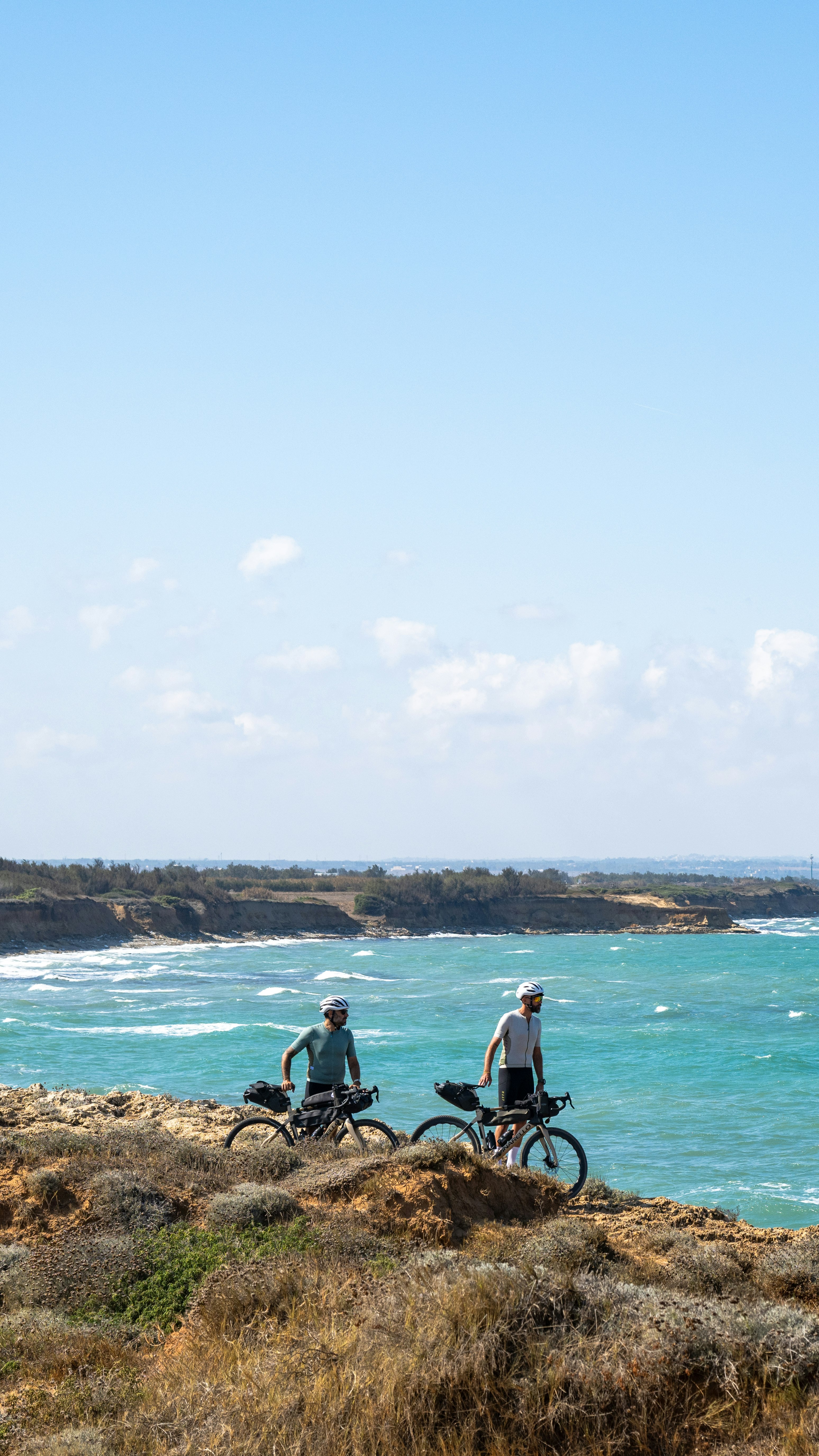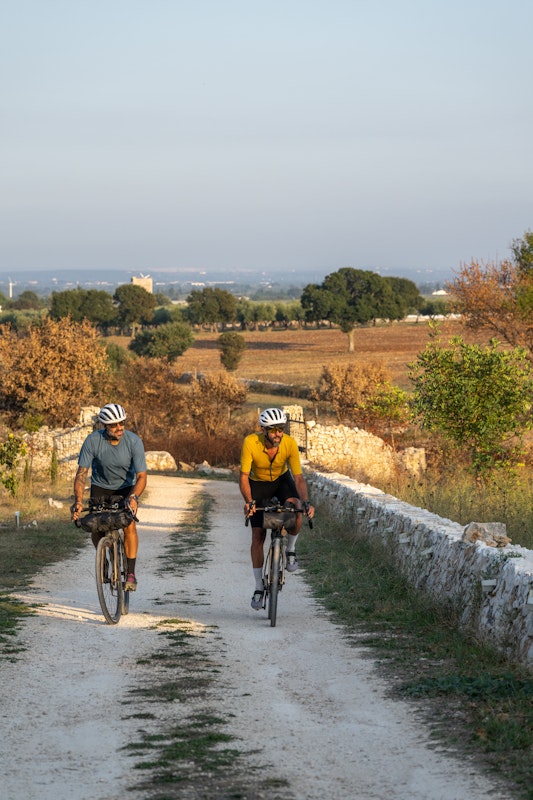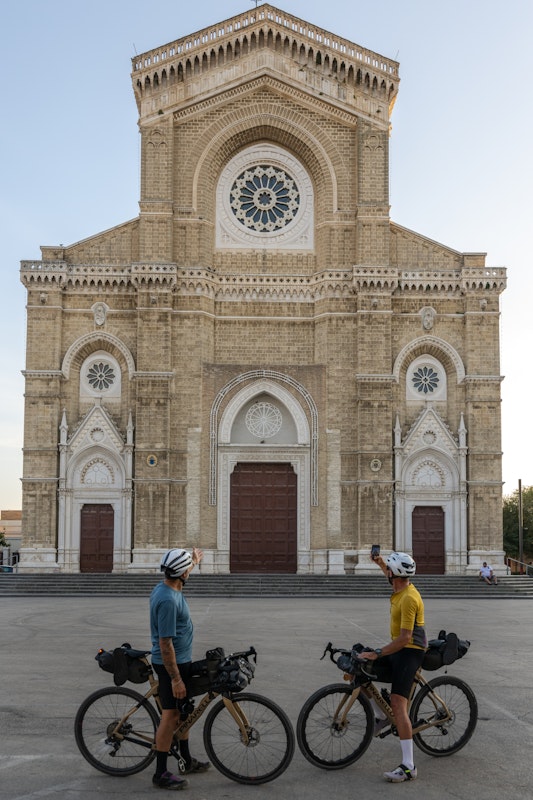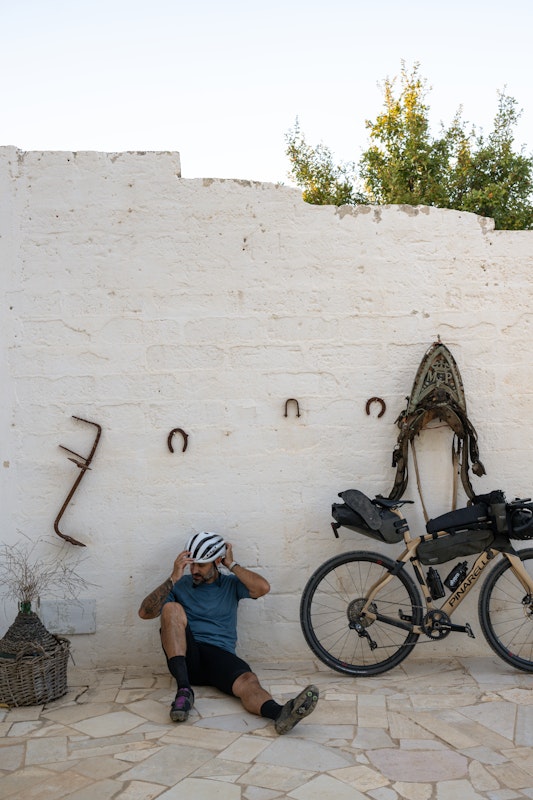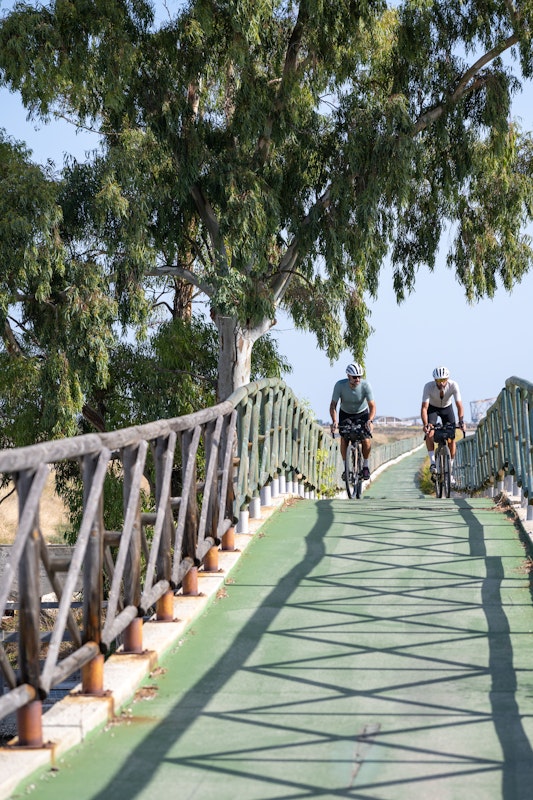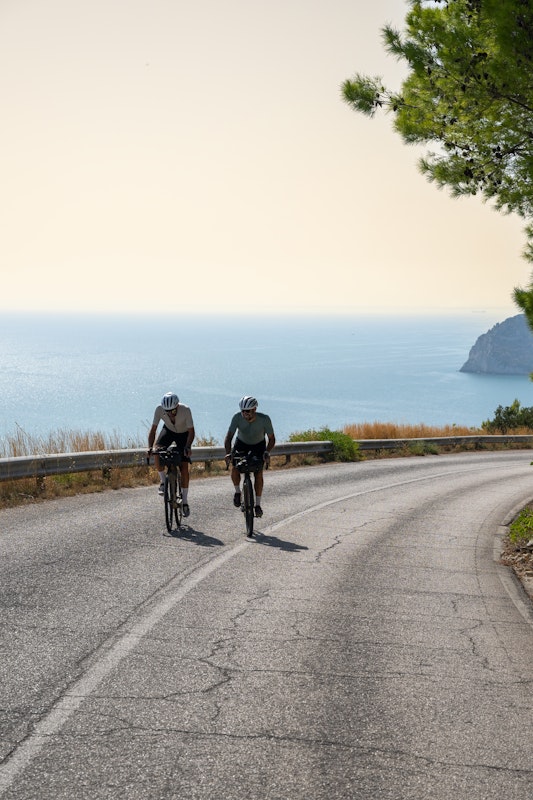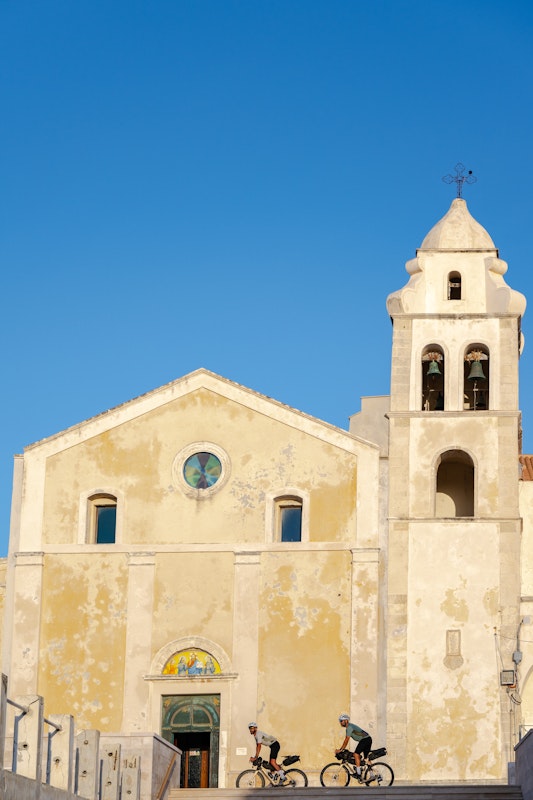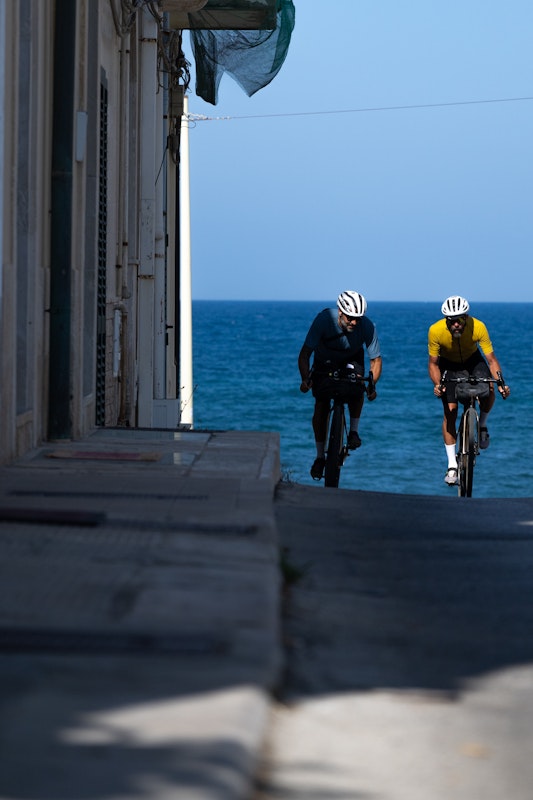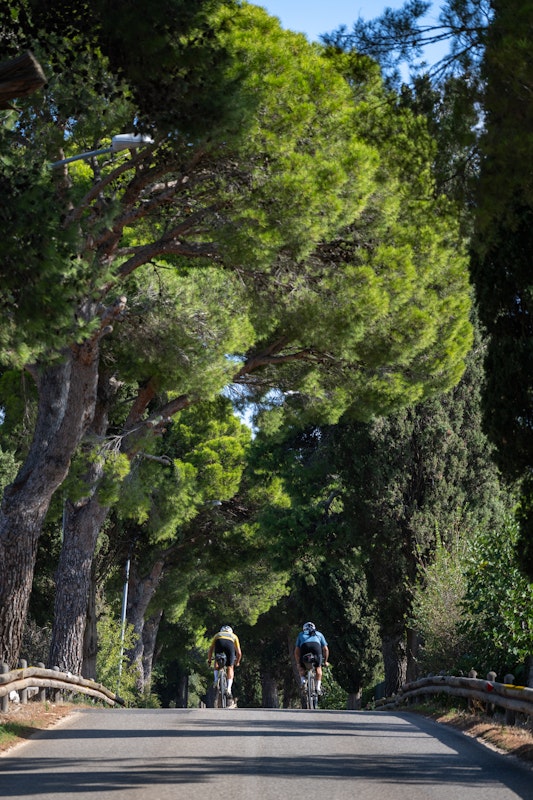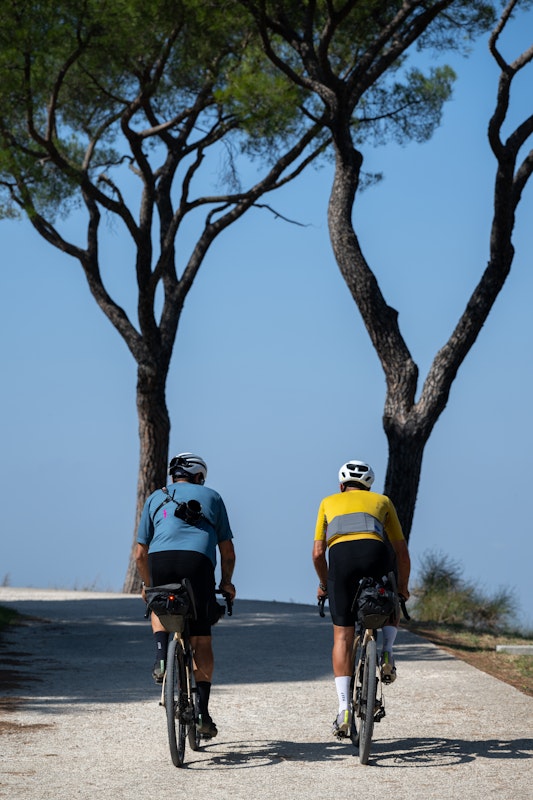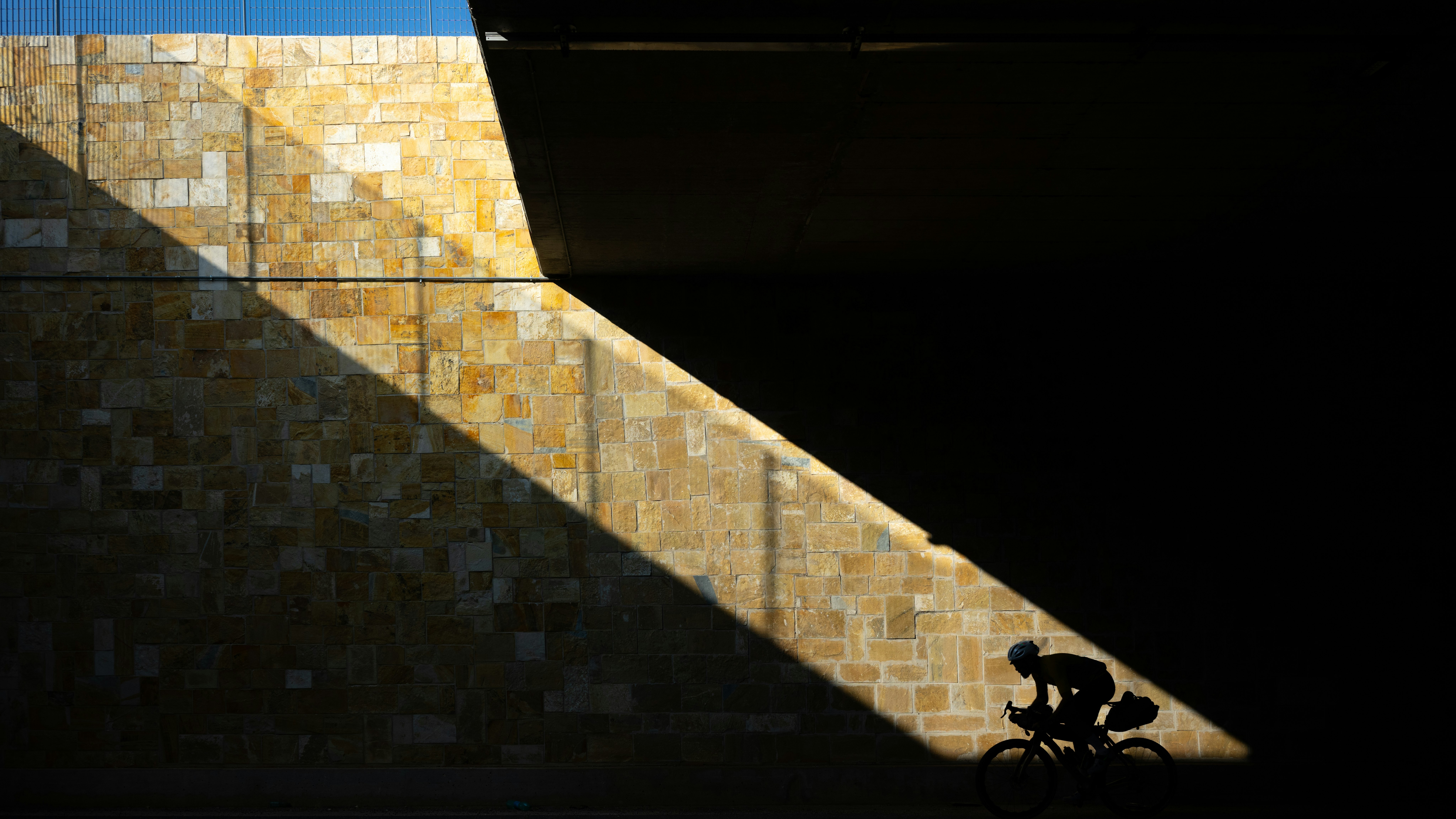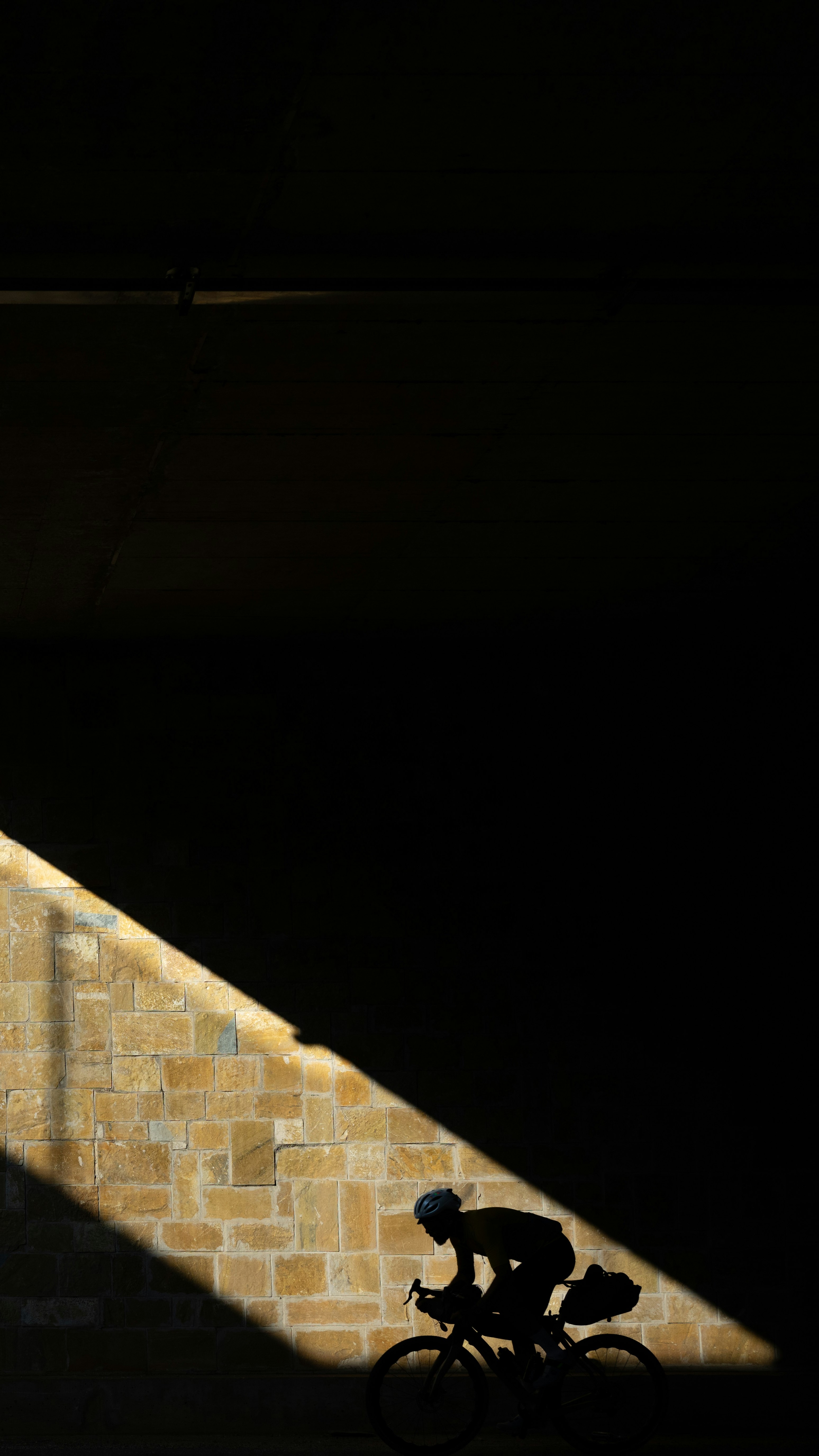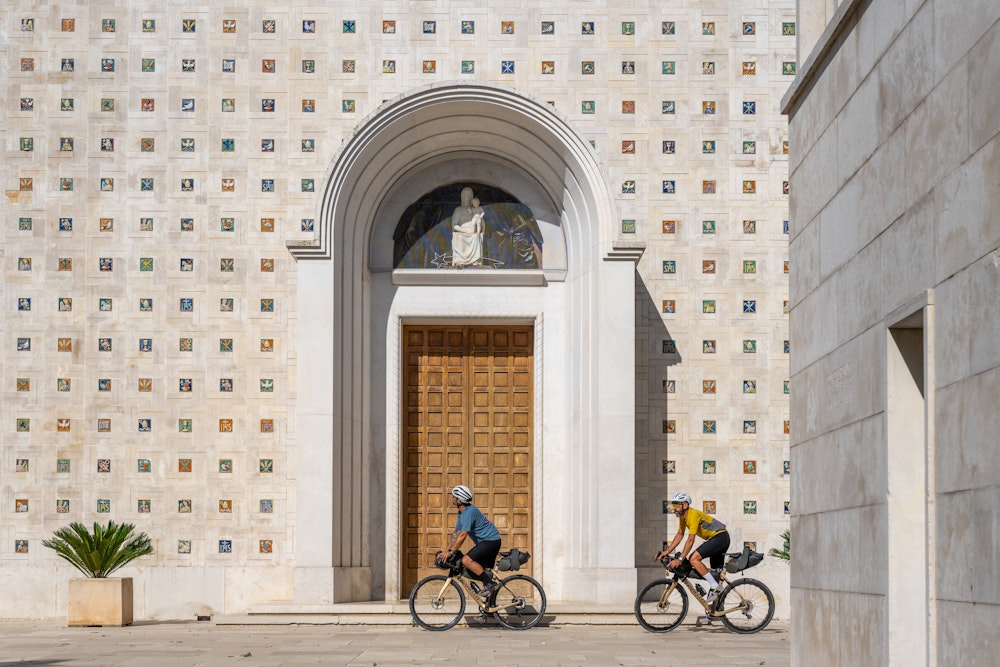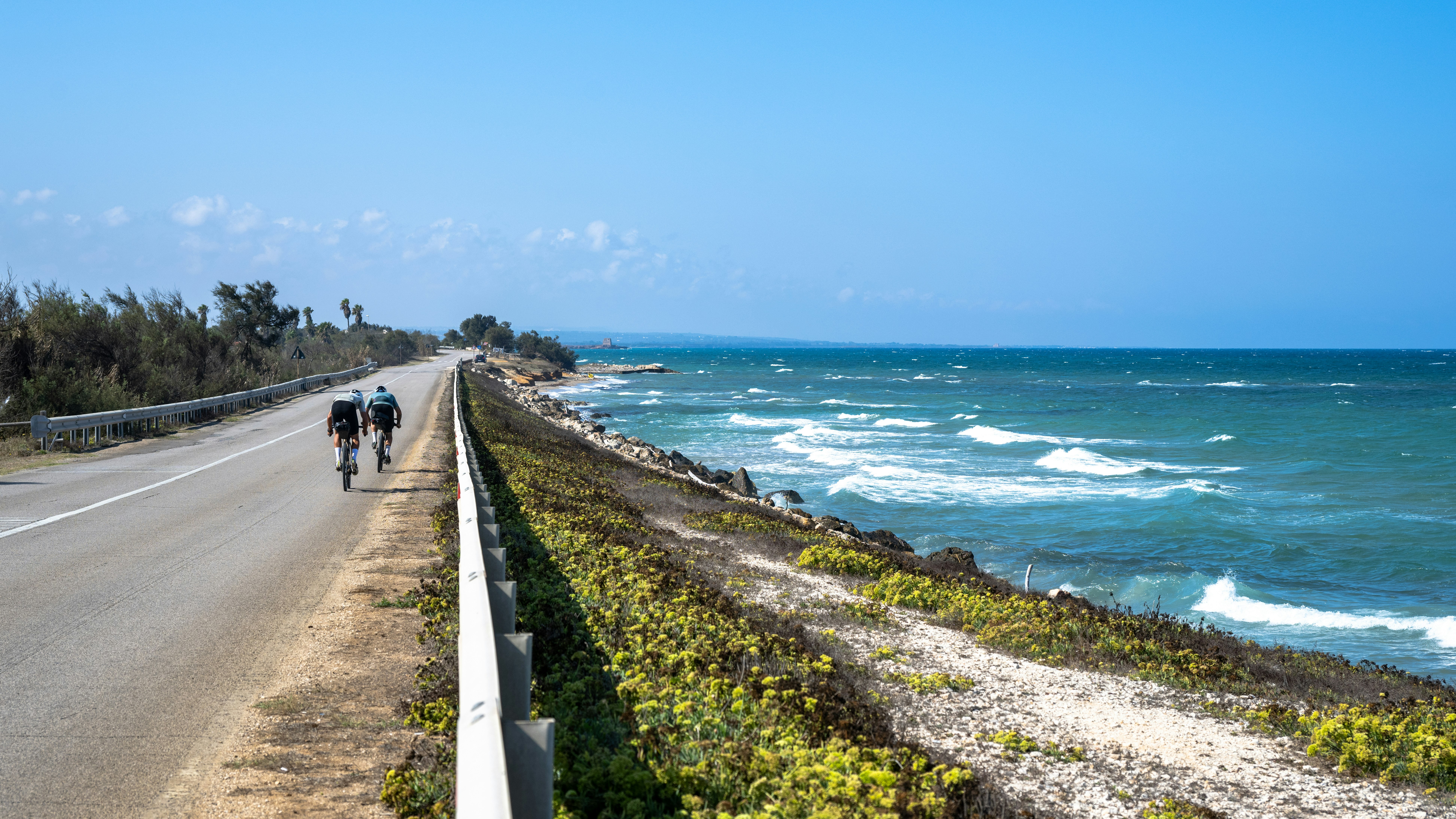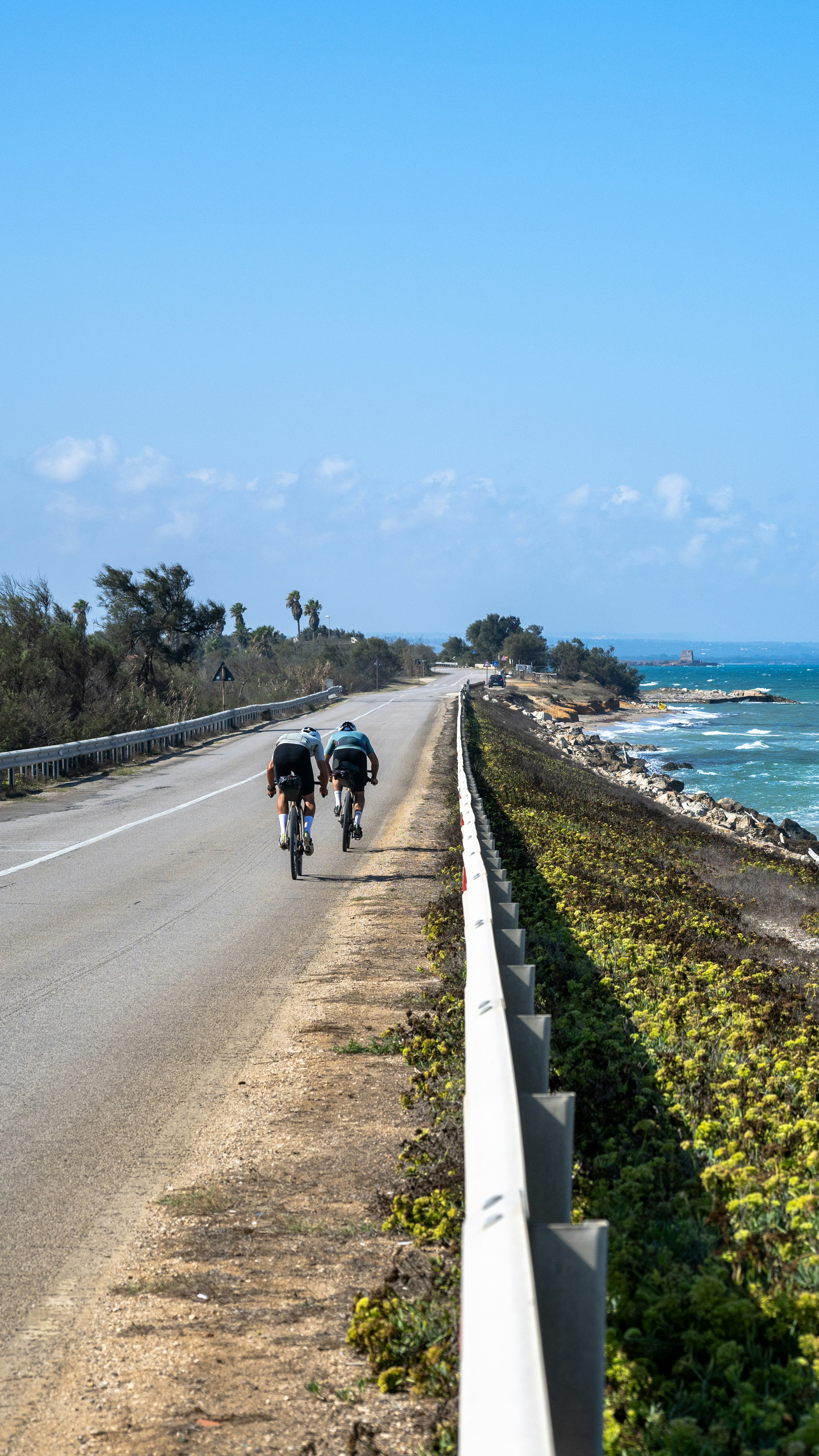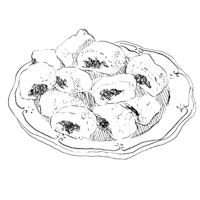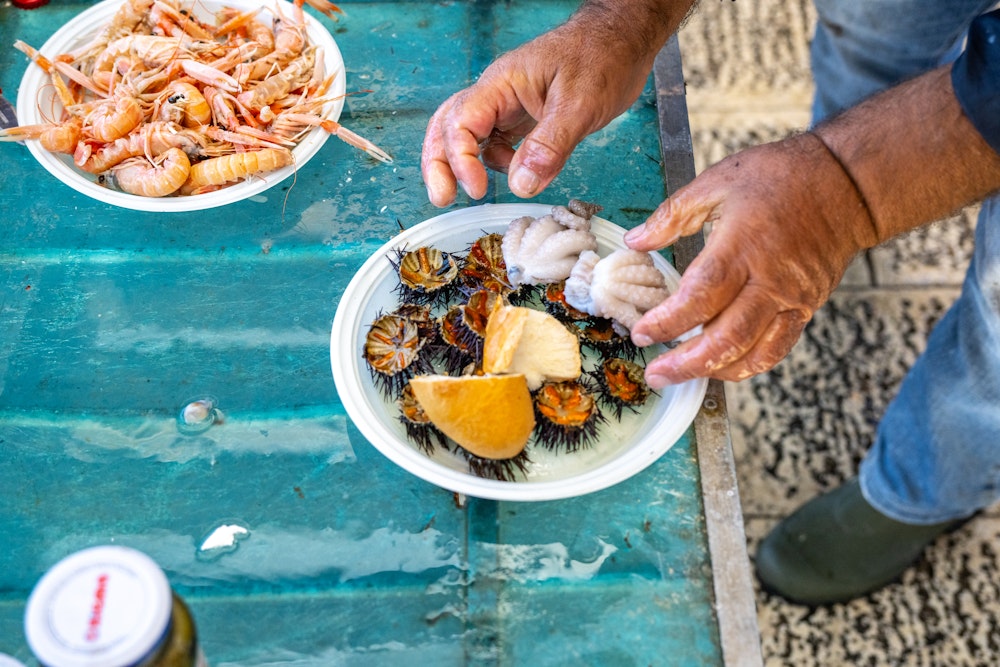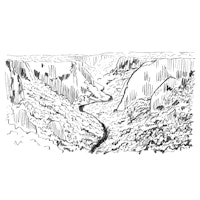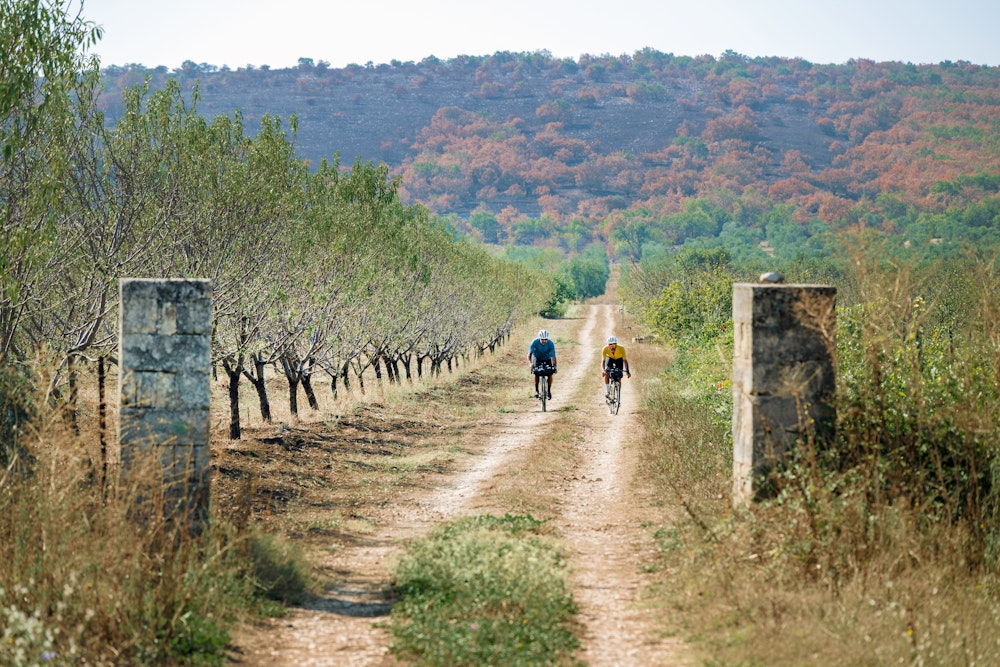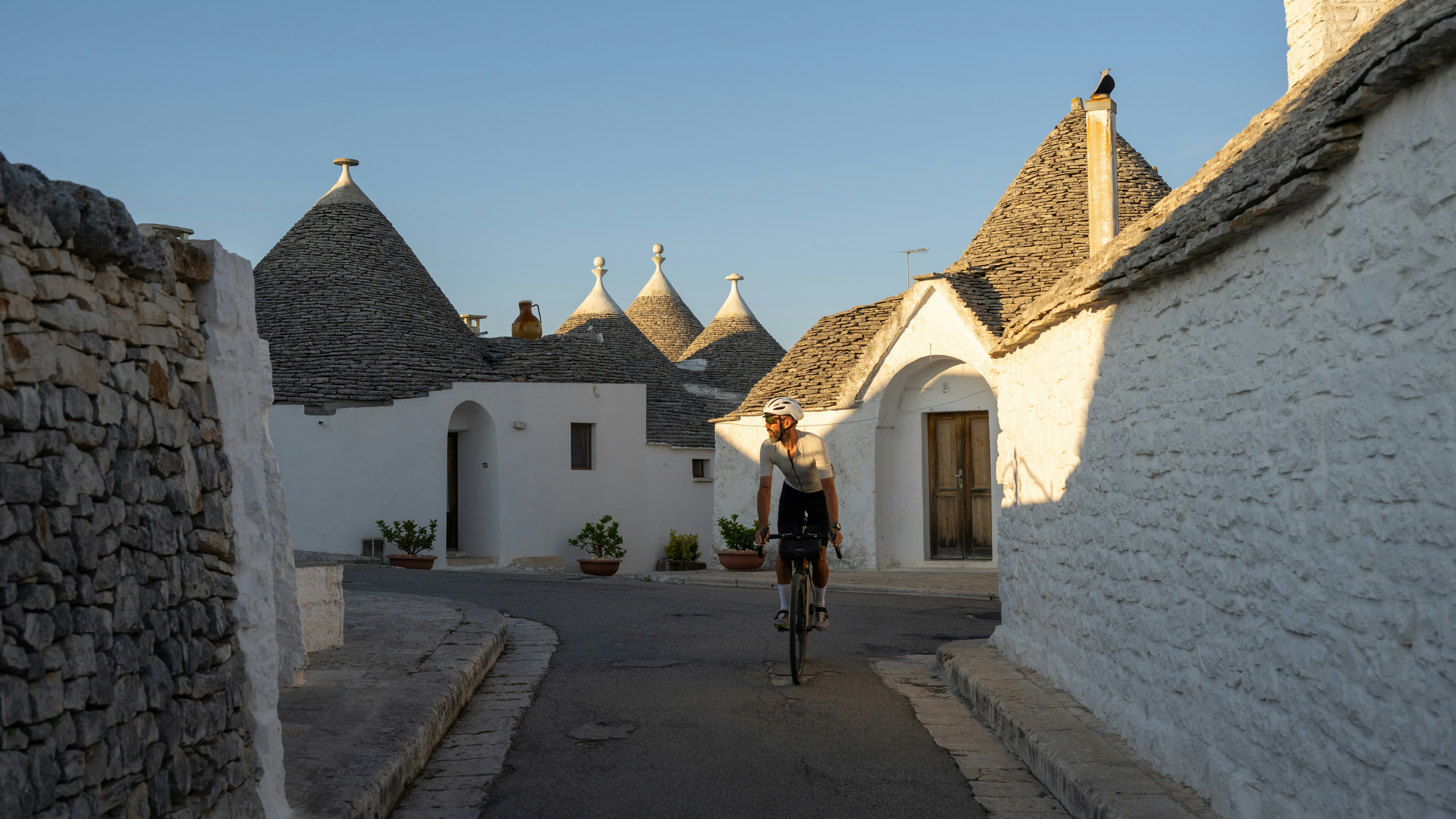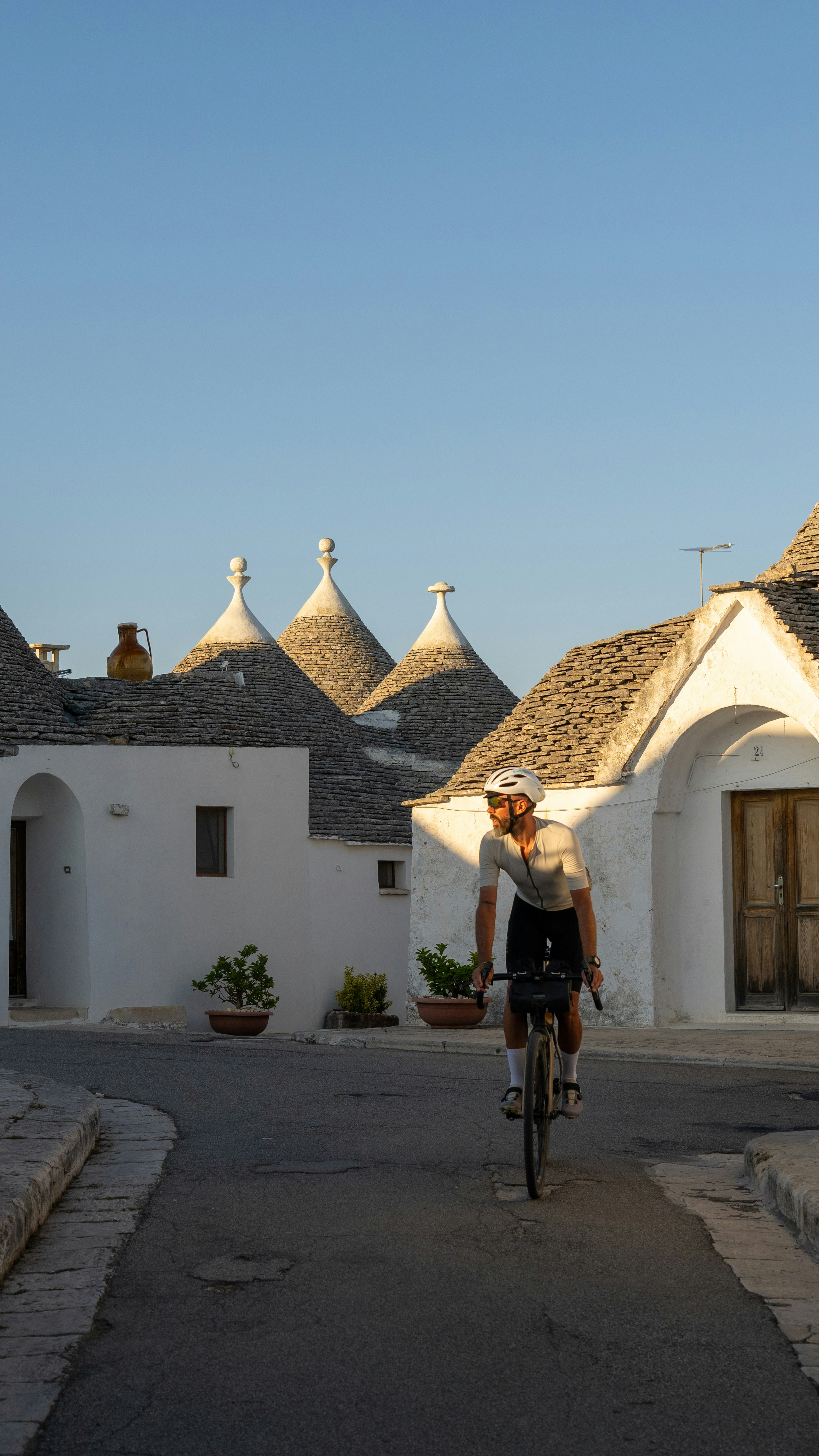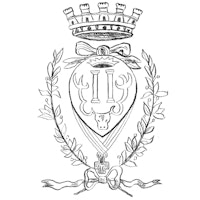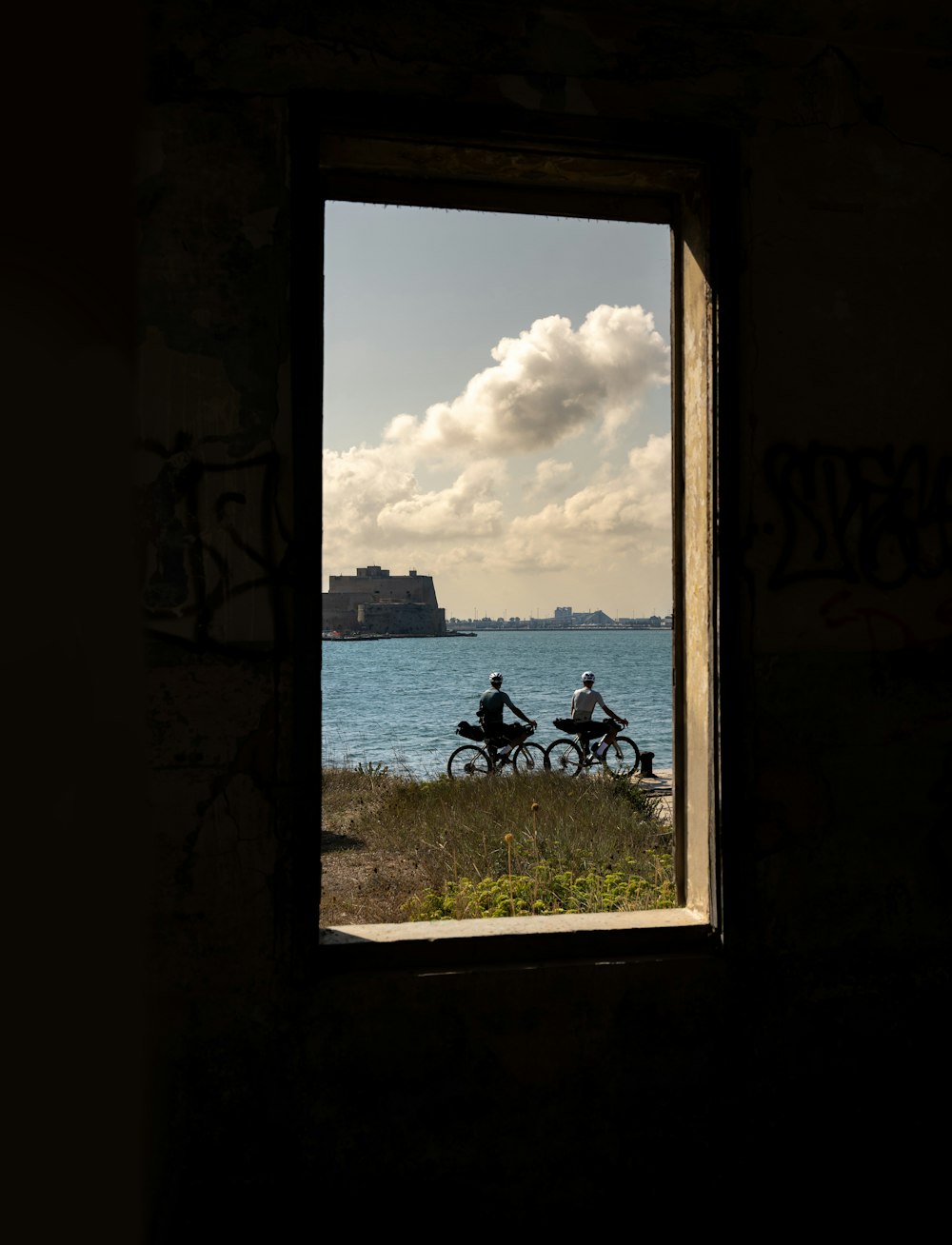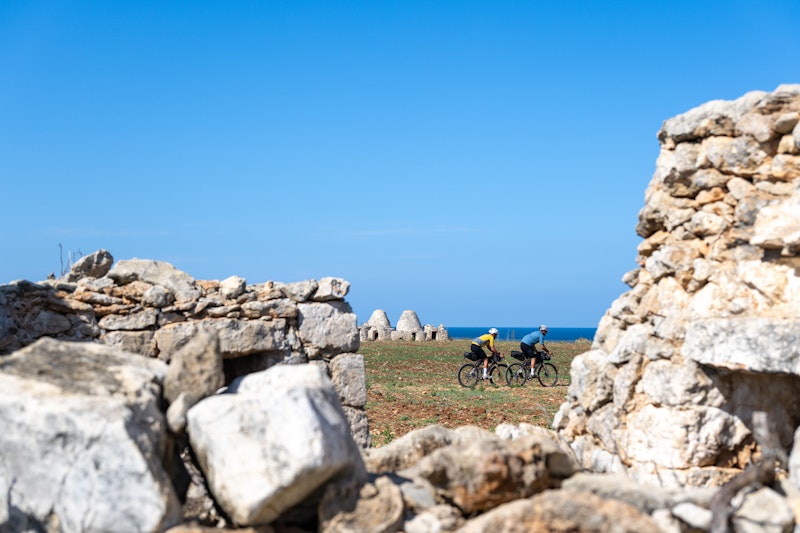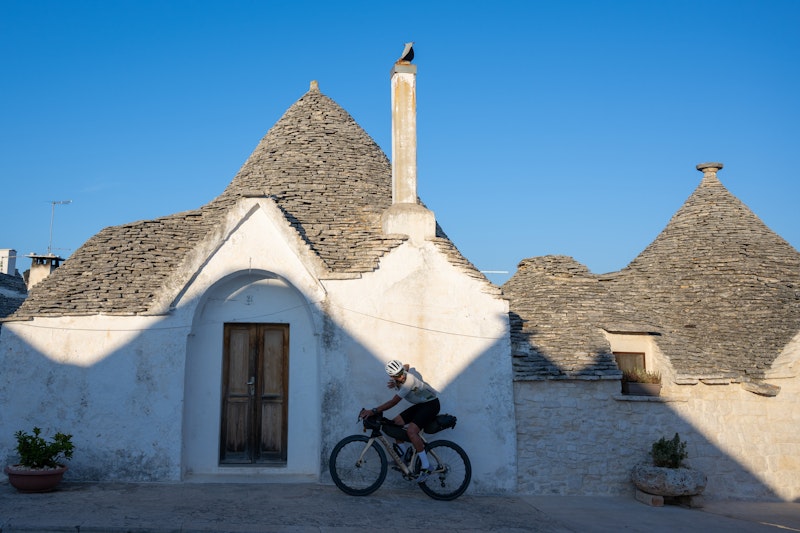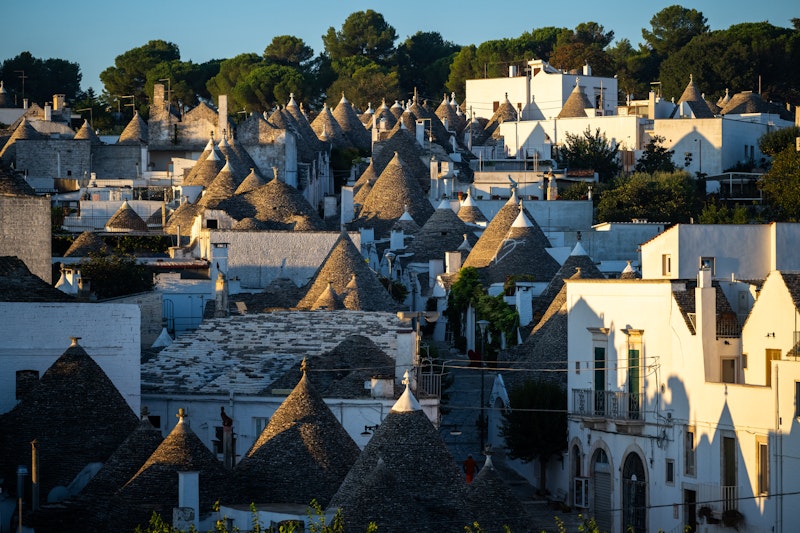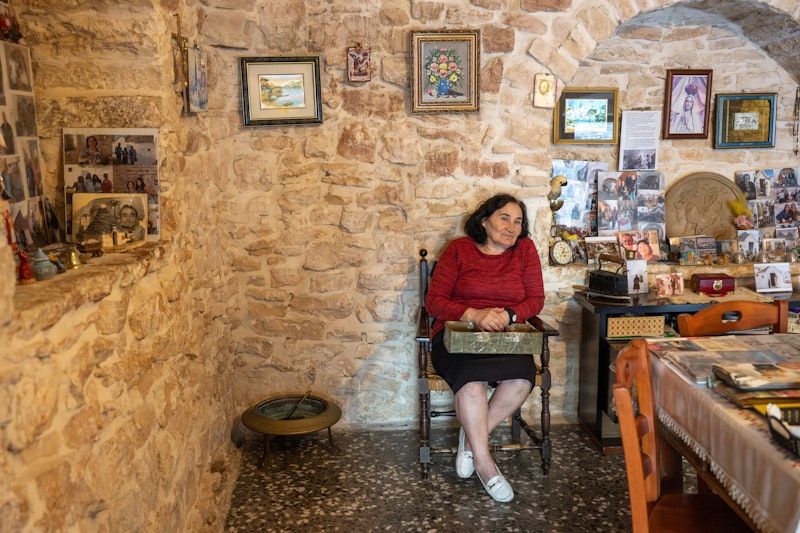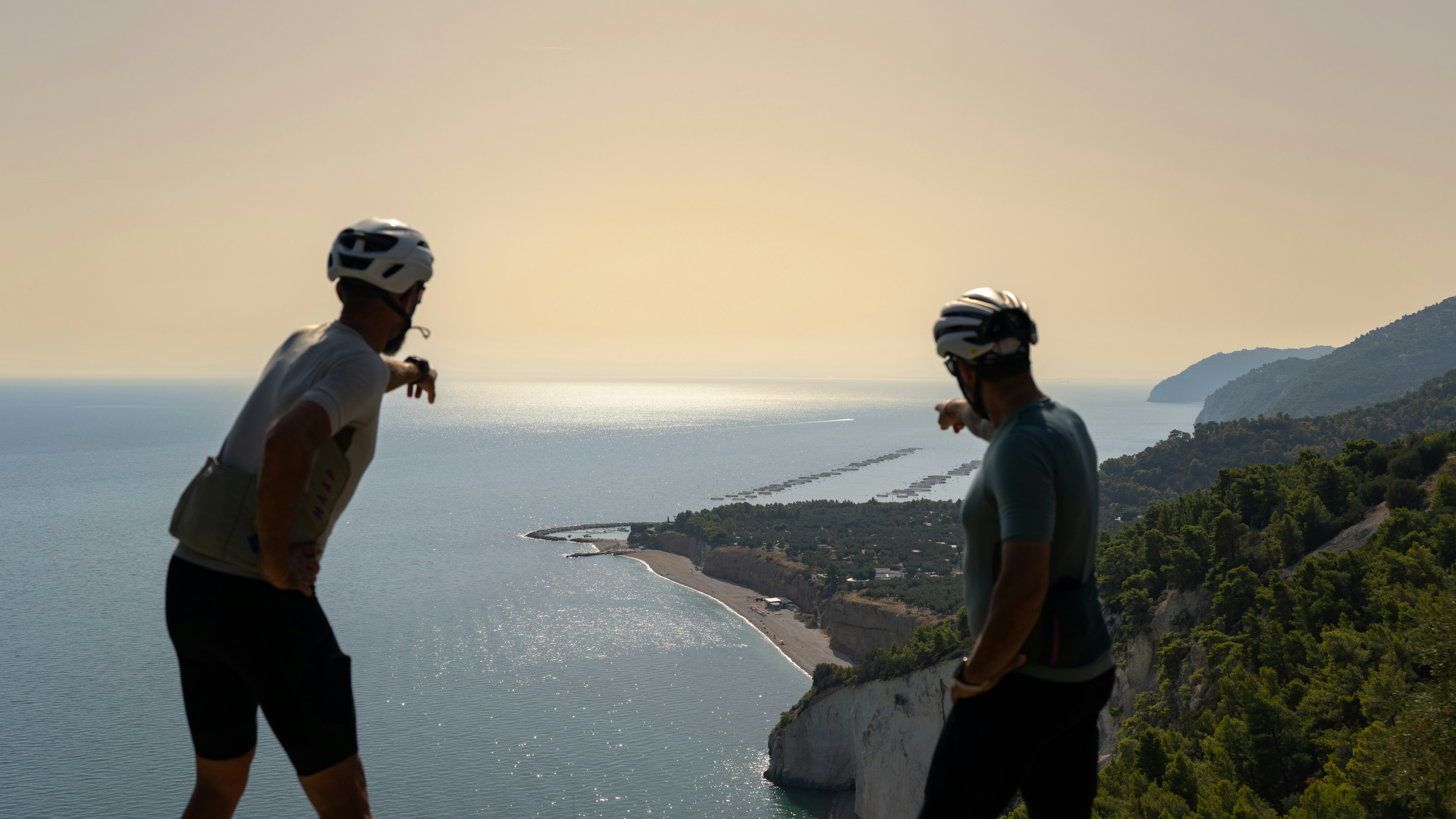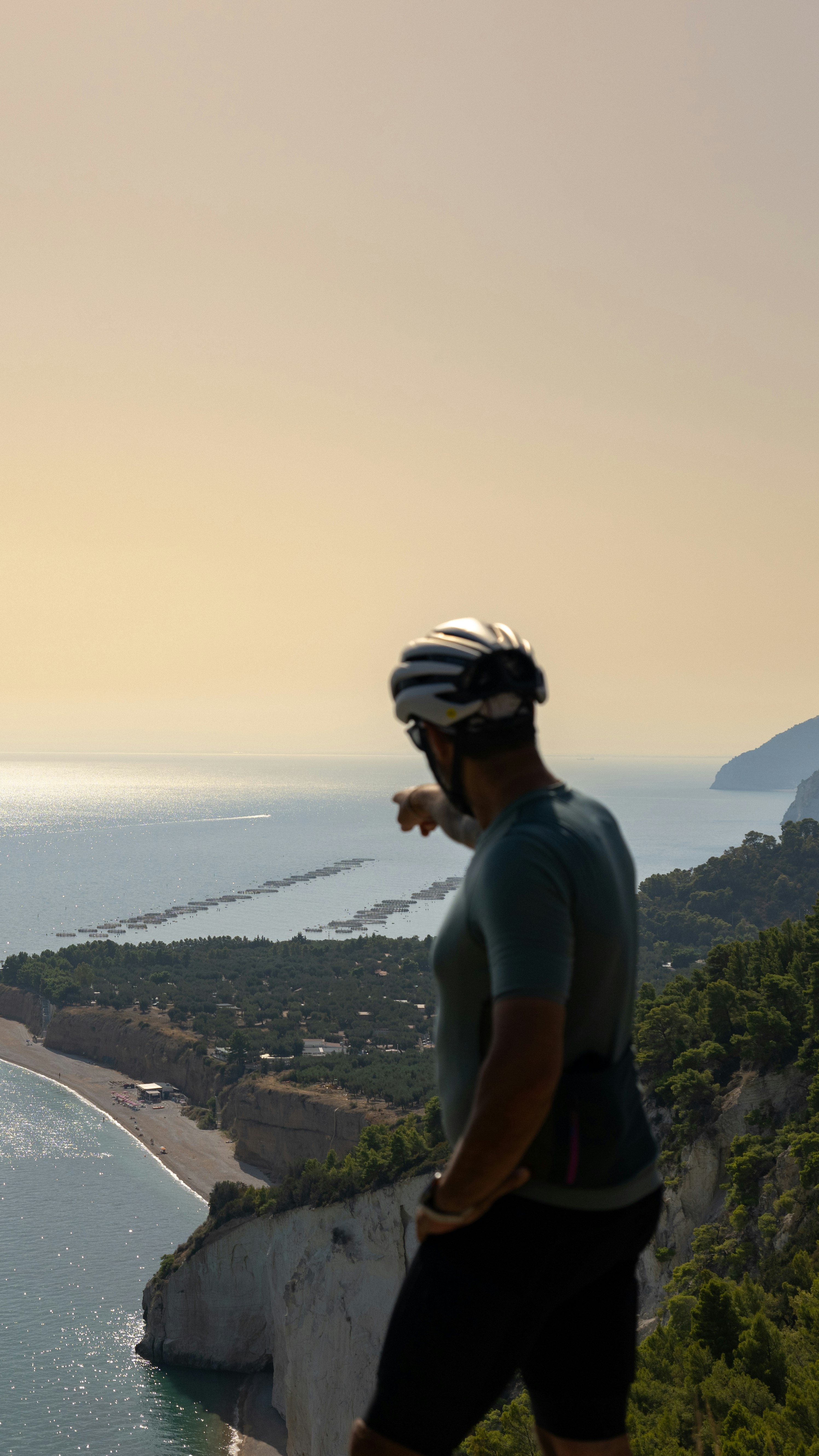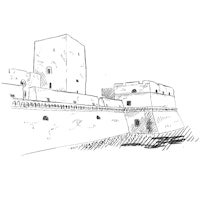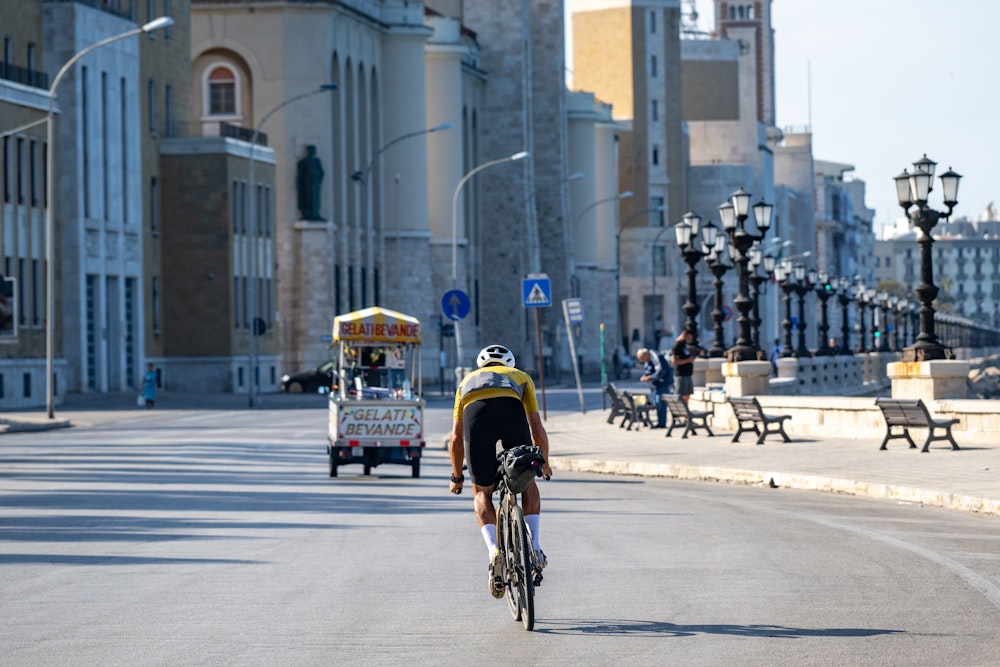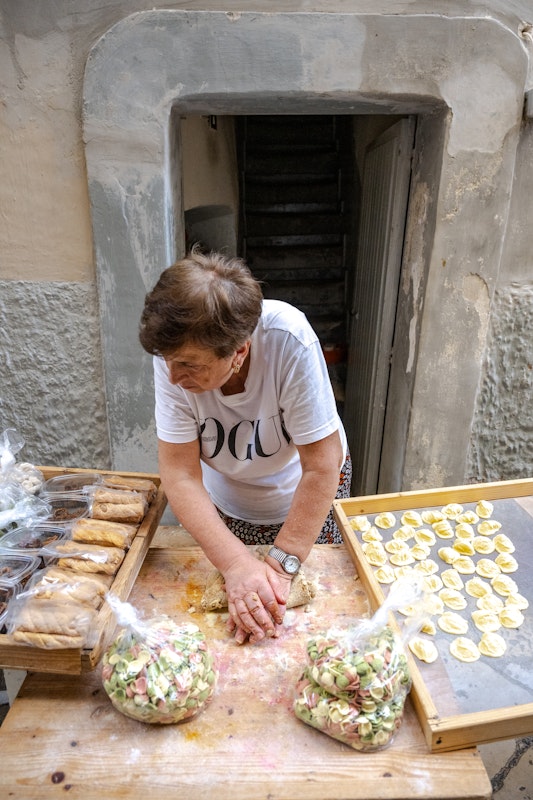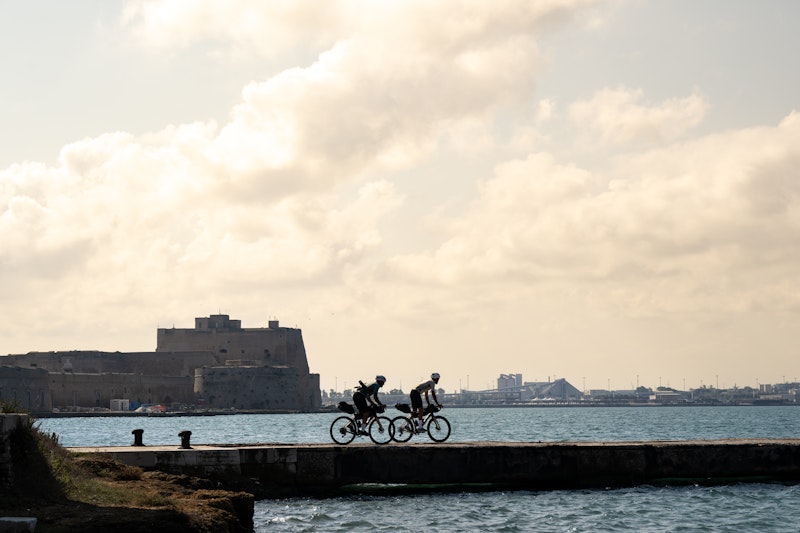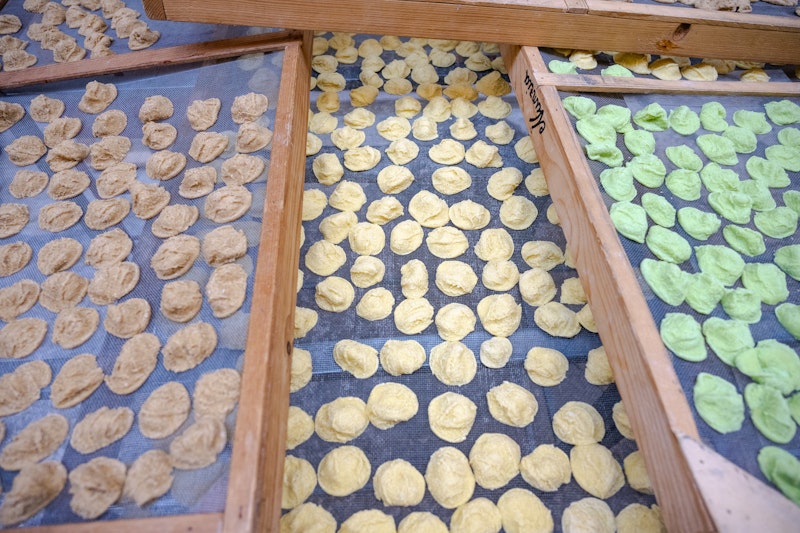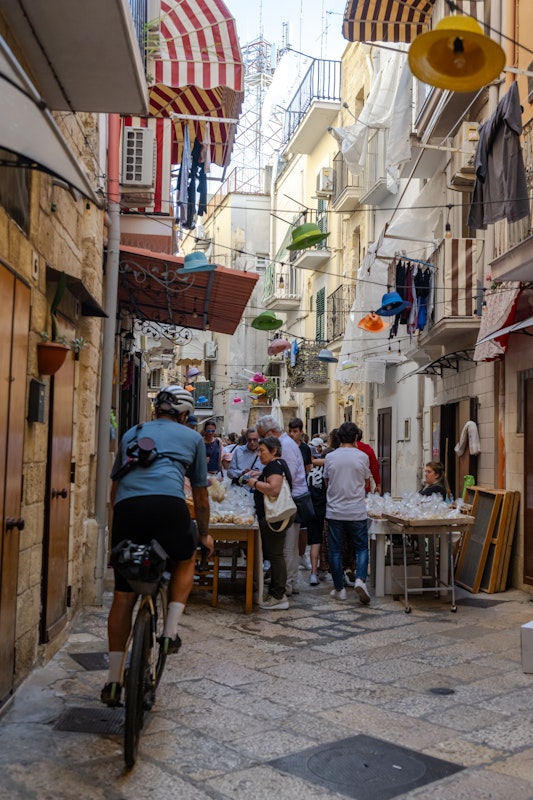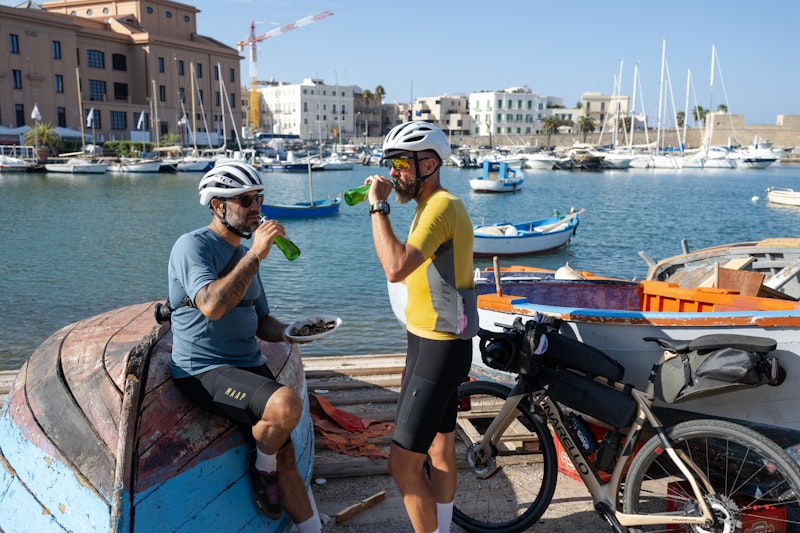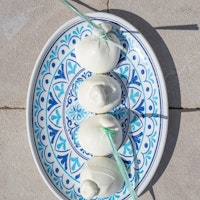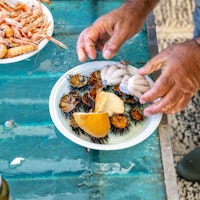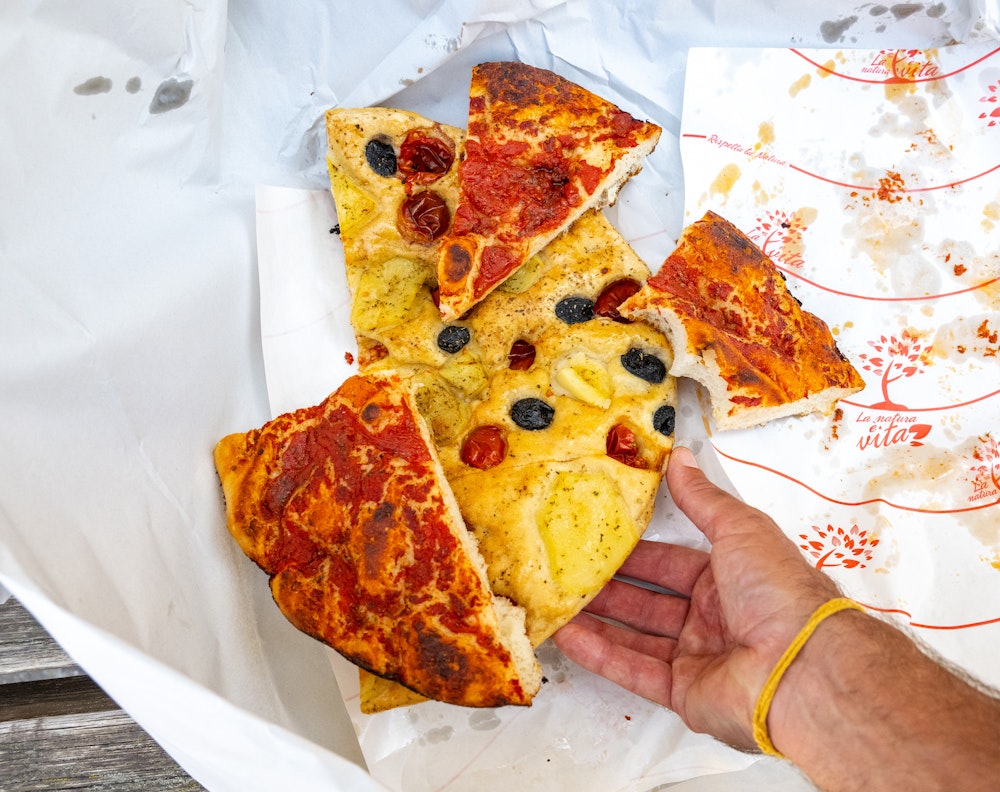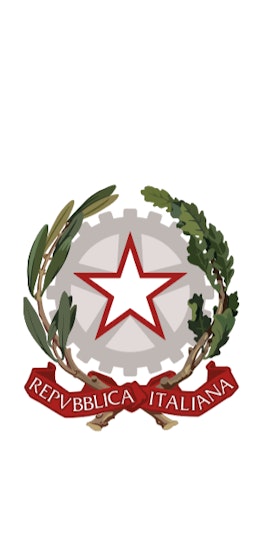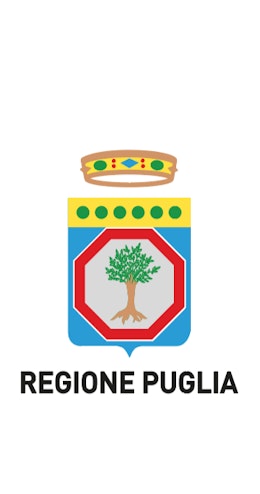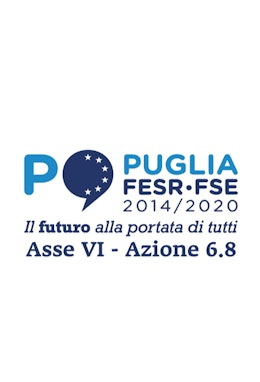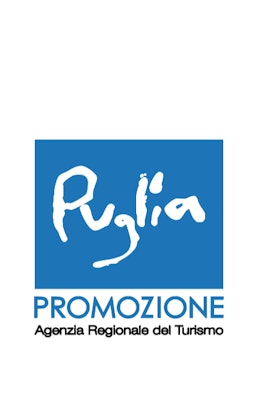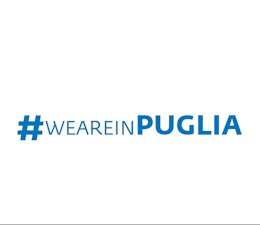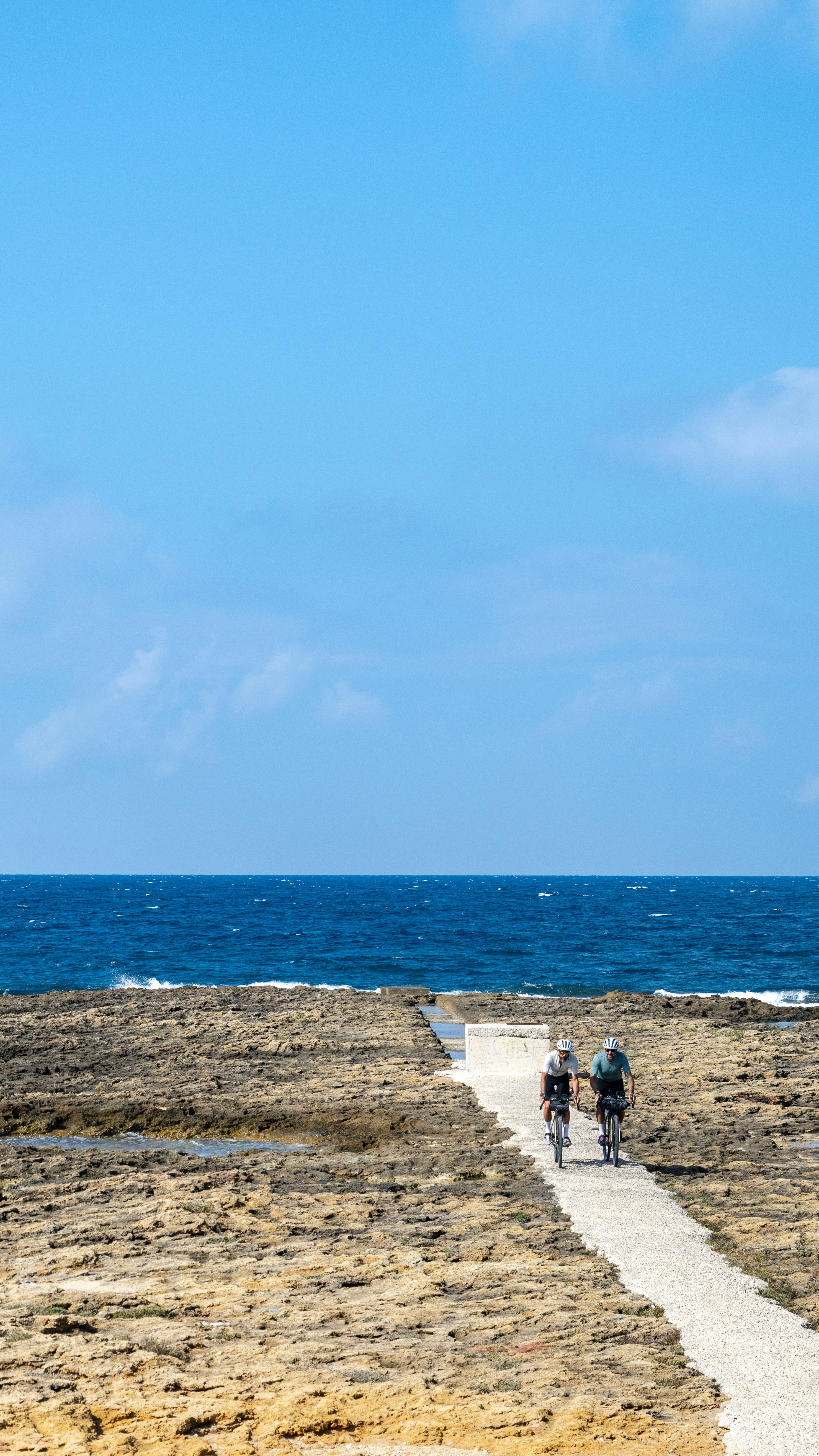
Puglia is a state of mind
800 Kilometres, 6 provinces, the sea, the hills, tradition and innovation.
Period
Jan - Dec
Elevation difference
4971 m
Total Length
804 km
Duration
8/10 Days
I
Puglia is a state of mind
00
Intro
01
Trust the number three
02
Keep your head down
03
The spur of Italy
04
Moisturising and soothing
05
One mishap is my only hope (number one)
06
One hundred, one hundred!
07
One mishap is my only hope (number two)
08
Lu sole, lu mare e lu ientu. And the trulli
09
How about we start again?
I am a lone traveller who has found in the bicycle the perfect means to cover long distances and see what for me are new lands. Slowly. Taking photos, shooting videos, shaking hands. And for this very reason I have always imposed a small rule on myself, a whim for some but a truly unbreakable law for me: never visit the same place more than once. So you can imagine my reaction when, after asking the editorial staff if I could write something for Destinations, their answer was: sure, come with us to Puglia! But how? Me? I breathed and cycled in the dust of Puglia’s long country roads until I was eighteen years old, I grew up in a small town of four thousand souls in the province of Taranto, I know those roads like the back of my hand, those smells, those sunsets with the taste of salt, olive oil and Primitivo di Manduria. And now you want me to go back home? What about my unbreakable law? This will no doubt require new eyes, I think. But I am not so sure.
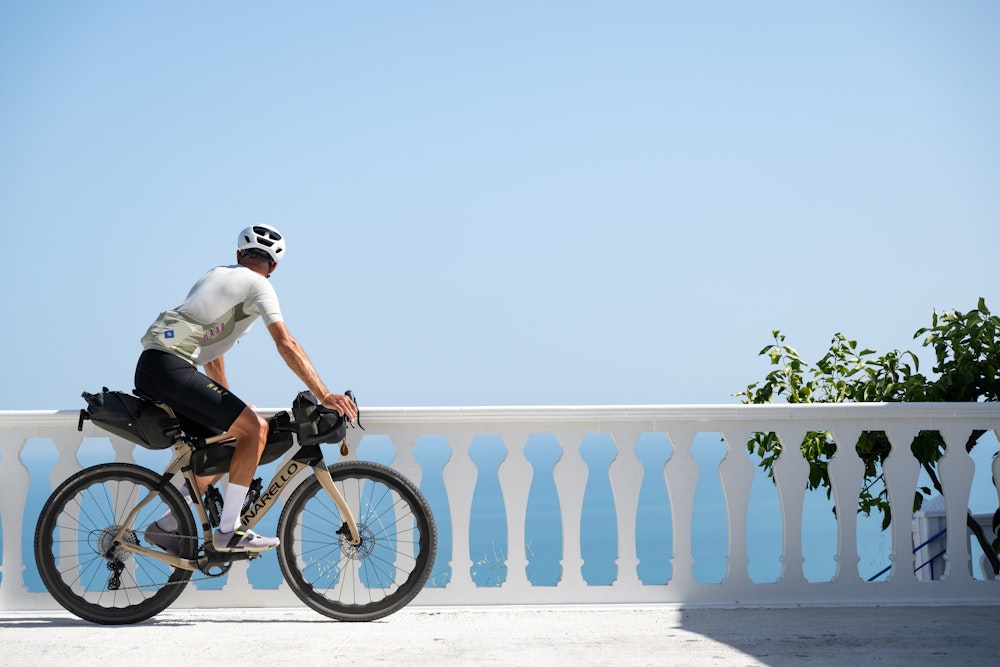
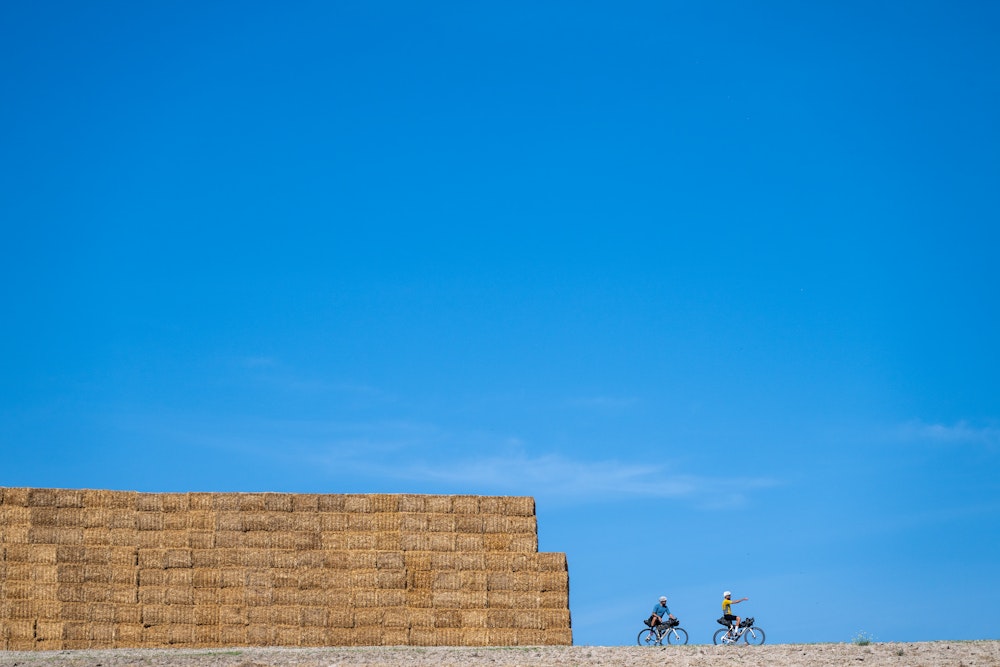
I travel alone because alone I can dictate my own travel times. Alone you are completely immersed in the present, your senses are sharpened, tuned in: everything that happens has to do with you and you alone. And then you are open: to the other, to the novel, to the different. I have always maintained that if there’s more than three people it can no longer be called ‘travelling’, rather a school trip with class mates. But being in a group of three was reassuring from the start. Three, perfect number. Synthesis of odd (one) and even (two) as a certain Pythagoras said.
First time for me on a bicycle, on the road, with two near strangers. I had intercepted French a few years ago, he’d come to tell me, on my radio programme, about endeavours in tandem with his Laura. He had intrigued me. We lost touch, also because of Covid, and then found each other again. He drinks his American coffee in a small bar on the Bari waterfront. He has his mobile phone in his hand and studies the charts like a real captain. The three ships of the fleet are ready. At his side is Paolo, whom everyone knows as Penni. Mutual friends have told me so much about him and for a loner like me the word ‘friends’ has a very important connotation and value. I have few, very few, but I trust them completely. Penni will be the photographer who will follow us, also in his bike, during these eight hundred kilometres and almost five thousand metres of altitude difference. He woke up earlier than everyone else this morning. He shows me the snaps he has already taken on the San Nicola pier, in the harbour.
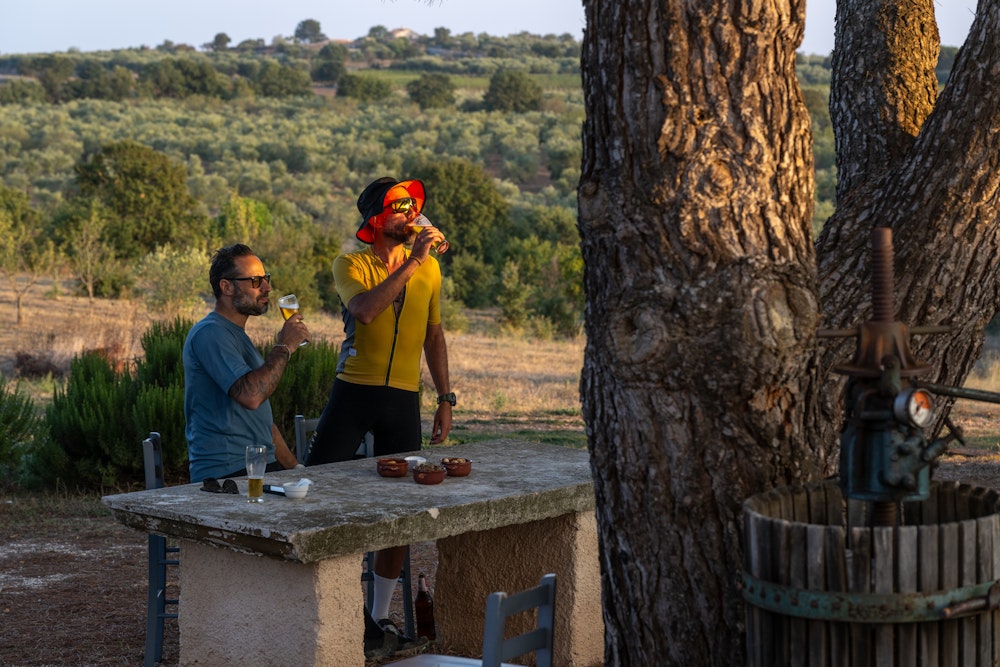
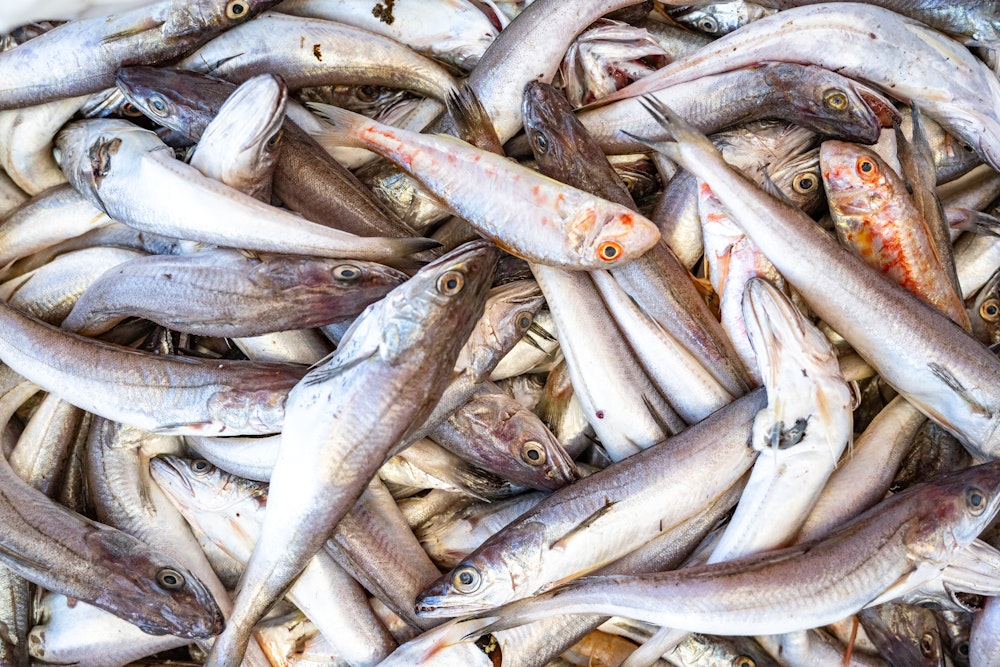
I peek at the photos from the screen of his camera. I can smell sea urchins and octopus in them.
«It’s just after nine, but I’m already craving for mussels» I comment.
We all laugh.
Bari is a perfect starting point for this adventure. I am a Tarantino, an Apulian from Middle-earth, and though I love all of Salento, I have always been surrounded by friends from Bari. I have shared so much, so very much with them. And now this city is gifting me with new faces and a new start.
We are heading north. Molfetta, Bisceglie, Trani, Barletta. We will return to the capital in a few days.
Off we go.
«A hundred and ten?» I ask the guys as with a piece of bread I honour the plate of orecchiette with meat sauce that I have just devoured.
«Something more», French mumbles as he politely covers his mouth with his left hand and with his right continues the circular motion of mopping up the typically Apulian first course.
«To me it looks like at least two thousand metres of altitude difference», laughs Penni.
We have done a hundred or so kilometres from Bari in the direction of Manfredonia. The wind always against us and the scorching sun toasting our faces. The world, our planet, continues to suffer from climate crisis and cycling at 30 degrees Celsius in October is not at all normal. Pleasant? Probably. Normal? No. And the issue is always the same: the problem is not just the abnormal heat, but the sudden and abrupt changes in temperature that cause catastrophic weather events. But we continue to deny it, who cares, planet Earth is big enough.
If only bicycles were used more. So simple, so much fun! The biciclet in Apulian dialect. Or rather, in the dialect of my little village. Just look at the bike go all along the Adriatic coast. Look at it whizzing from one traffic light to the next in these congested towns.
Cars, cars, but only inside the villages and towns. Outside, the provincial and state roads are empty, and we run fast. The thermometer on my watch now reads thirty-two degrees. Time for a beer, let’s break the pace. Our little train departs once again. French in the lead, breaking this annoying mistral wind, Penni slipstreaming and finally, strenuously, myself, with my hamstring muscle hurting like hell. Three months off the bike and this is the result. But I hold my own. The guys are pushing and keeping up with them is a piece of cake.
«Water, salt and durum wheat, lots of love and handy skills. Here is the recipe for orecchiette happiness» I suggest this as I watch my two seasoned cyclists enjoy another round of first courses.
«Chiancarelle or recchjetedd but also strascinate. We also call them that. Try that for size».
There is cheerfulness and the good Negramaro we are sipping encourages conviviality. The starters of caciocavallo cheese, ricotta and various types of salame have been polished off. So did the second portion of Altamura bread that we had asked for just a few minutes ago, with a drizzle of olive oil. We cycle because we like eating. I think it has already been said many times and repeated, but I can only reiterate the concept. And we also like to slow down, to move at a more humane pace, closer to honest living. Chats, confessions, laughter and planning. Penni shows us a few photos of the day. French devours thirty, maybe forty olives. Who can blame him? These olives are so full, so tasty.
«No thanks…no second course. We just can’t» we cry out in unison as the cheesemaker at the masseria where we sleep asks if we are ready for the second course. We are full, not just of food.
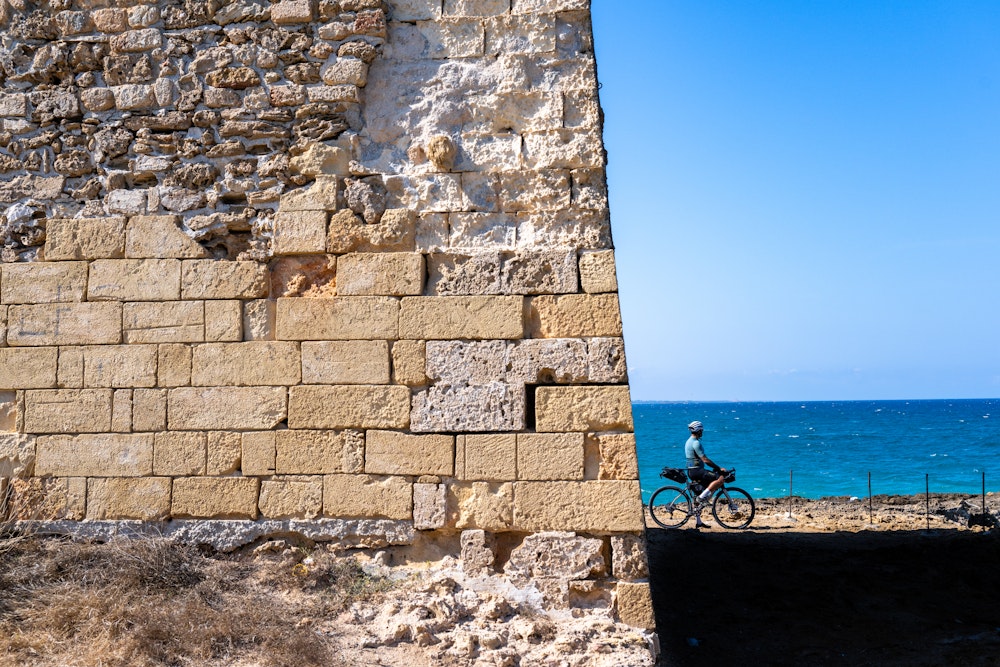
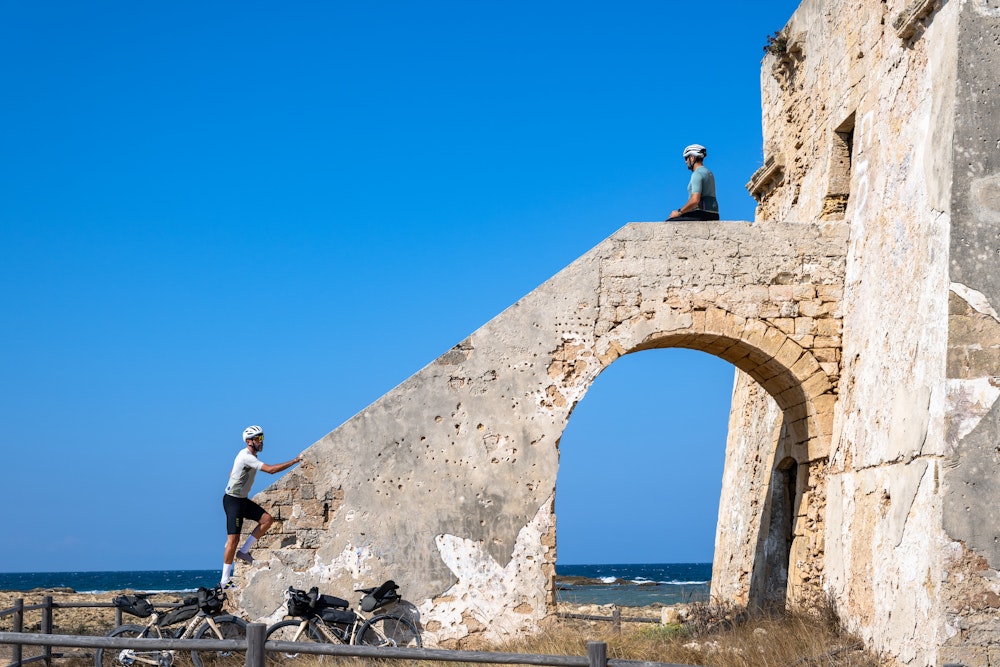
It may sound absurd but it’s the truth: I have never cycled in the Gargano. Manfredonia, Mattinata, Vieste, Peschici have always just been distant holiday resorts for me, described by friends in their thirties while I was at high school. I have a memory that is not mine, only second hand. For years I kept promising myself to replace those images painted by others with pictures taken by my own eyes, and those of Penni. The day’s been memorable. Sixty kilometres and a thousand or so metres of altitude difference, of teary eyes and seductive beauty. I go slowly in general, but particularly when it’s uphill. I could cycle for ever but I always have my head in the air looking around. The departure from Manfredonia was marked by a breakfast of focaccia. The cherry tomatoes crushed all over the dough and then fifteen black olives (yes, I counted every single time I pooped one in my mouth) put us in the best possible condition for the start. Carbohydrates, it’s the truth, always do a damn good job as a natural doping. The ascent never hurts: there are a few ten per cent climbs, but nothing that breaks our pace.
«It goes down after the ramp!» is what we often repeat to each other throughout the morning. And it was just like that. Every time I wished for a tiny bit of downhill, there it was. And then I pushed on the pedals after a hundred metres and tackled another short ascent.
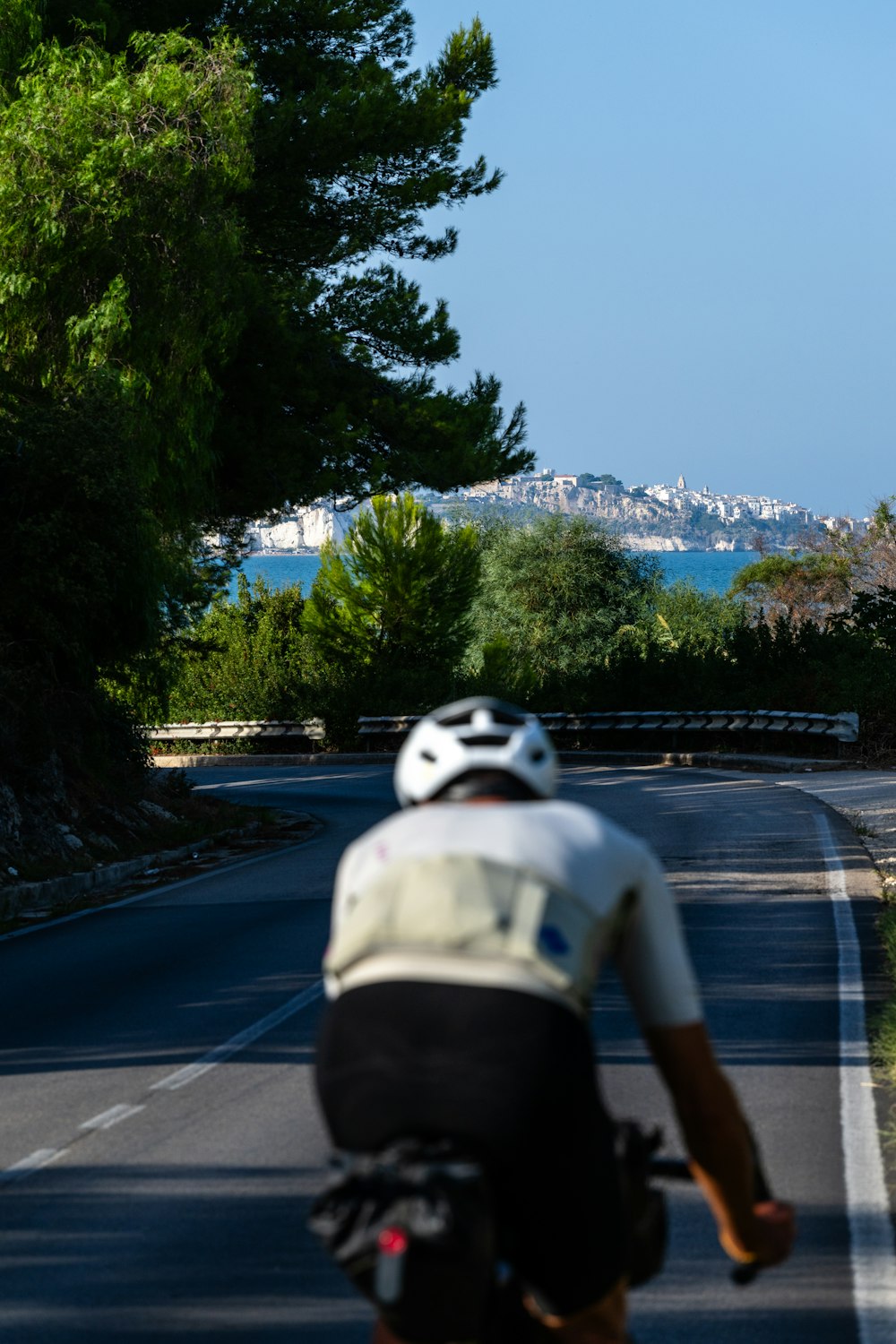
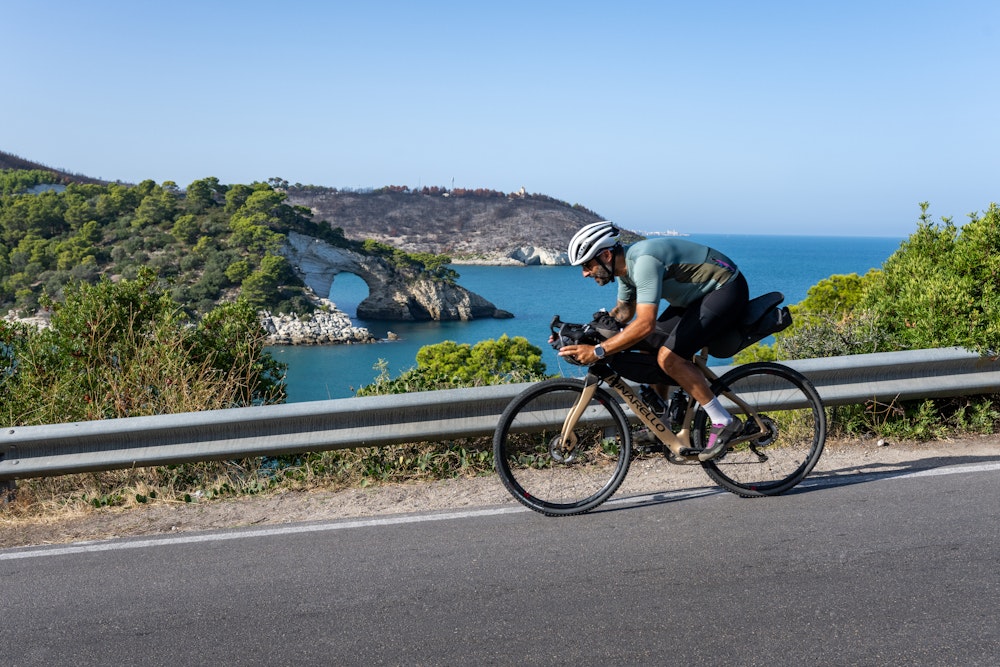
I can’t keep my head still. It’s a continuous looking around, studying, revelling. The woods and Mediterranean shrubs cover whole tracts of land, which get lost in the distance. The sheer cliffs overlooking the Adriatic create a contrast, a shade and a mix of green and blue, that even the eye of a careless observer wouldn’t fail to appreciate. The figures are incredible: out of about forty thousand hectares of land, more than 15 per cent is forest, and that’s where the Foresta Umbra is, which hosts within it the Faggeta Vetusta, an ancient beechwood which became Unesco World heritage in 2017. And to think that in secondary school I learnt that Puglia has very few woods. Surely not here.
The shutter of Penni’s camera acts as constant background music to the total silences that fill our day.
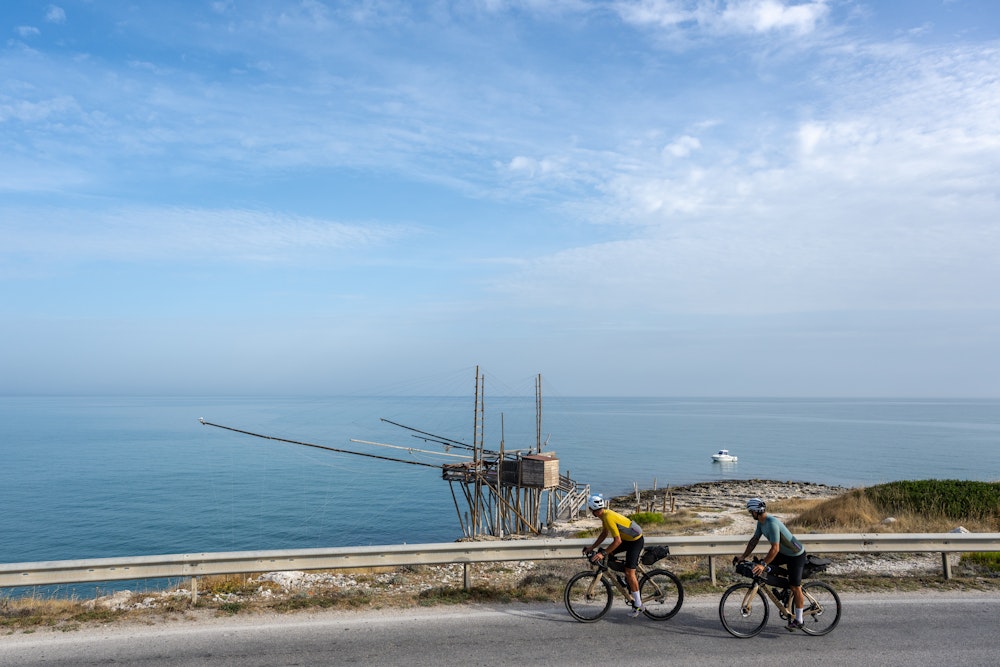
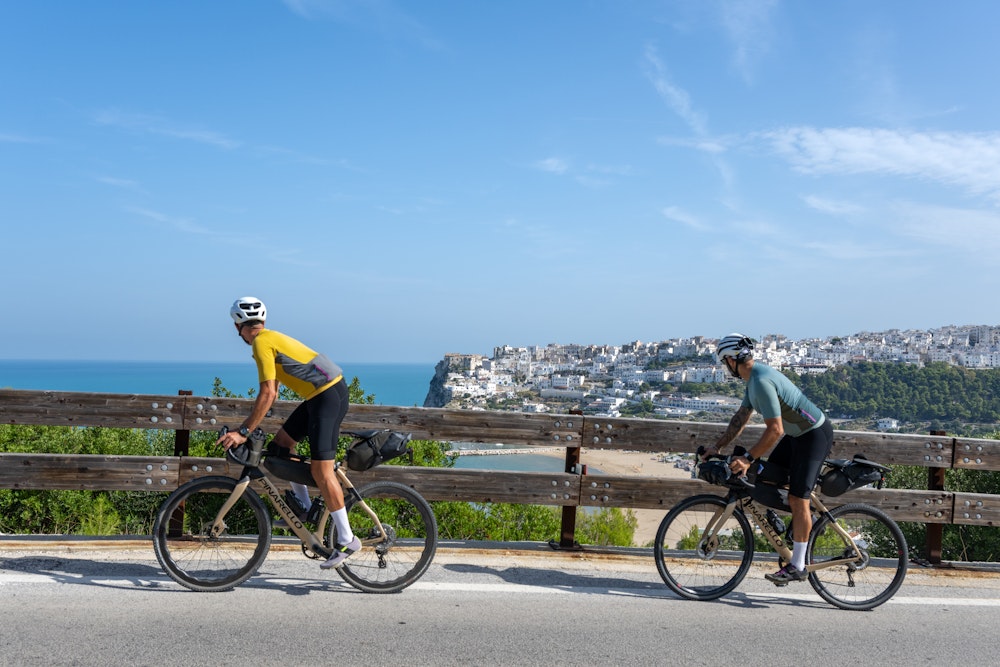
Distant beaches, arches created by rock formations, three hours from home. This land now seems so new to me, even richer.
«Slowly, go slowly downhill!» French yells at me.
«I can’t,» I reply, «I am much heavier than you, that’s why you’re so easy to overtake!»
Only our laughter is louder the whistling of the wind in our ears.
Vieste is a total surprise.
It feels like being on the set of The Lord of the Rings.
On arrival, guarding the Gargano town is the Pizzomunno monolith. It is a rock some twenty-five metres high, symbol of the town and synonymous with legends and tales.
Max Gazzè, the singer, took the most famous of legends and gave a popular appeal in 2018 by singing about it at the Sanremo Festival under the title La leggenda di Cristalda e Pizzomunno.
All of Vieste is perched on a rocky peninsula. As we continue cycling, we head towards the small peninsula of Punta San Francesco, where the ancient medieval centre is located. It is here that our day ends. Not even the time to unpack our bags, take a shower, and we already have our legs under the table, drinking good wine and eating fish soup. This has been a once-in-a-lifetime day.
«Wake up lazybones». This is Penni’s sweet wake up call for the morning. He is always the first for breakfast. I admire his ability to be so fresh right from the start. His biorhythm allows him to perform well in the early hours of the day. He is the first to go out, the first to get up, the first to get ready, the first to brush his teeth. Exactly the opposite of me, since I always tend to hit my stride slowly. Fortunately, what I have learnt these days is that French is exactly in the middle. And that makes life easier for me. The bear (or wolf, you name it) in me struggles to adapt to relationships with other animals, especially other humans. But as a traveller I try to be adaptable and flexible, I do my best. These differences, however, create balance. The trio works well, there’s harmony, even though we are still studying each other. But early impressions don’t lie. There is synergy, never contrast. French prepares the itinerary, Penni accelerates the procedures of getting dressed and getting out of bed, I trudge along but enjoy filming everything that can be documented: the video camera is always on and the idea is to create an unpretentious mini-doc of this adventure. My muscles are aching a little bit, but it’s not that important. Let’s just say that the corn in the groin area has yet to reform and that’s what would bother me the most. After a solo in Iceland a few months ago, I didn’t have the chance to continue training and so I lost what already wasn’t the best of physical forms.
«Is anything hurting?» I ask Penni.
«Absolutely not, as fresh as a daisy», he answers sarcastically.
«Well, I’ll catch a bus and meet you in San Severo» I reply.
I laugh as I observe the small, curious, cylindrical jar he holds in his hands. I see him unscrew the cap and put a finger inside a yellow very firm cream. It has no particular smell, and he’s smearing it on his skin, at the level of the ischial bones. At least that’s what he tells me, because intimacy with the team is fine, but the sense of modesty has not yet been completely overcome.
«Moisturising and soothing – he tells me as he hands me the little jar. – Try it. Trust me».
It’s a revelation.
After an hour or so of cycling we get to Peschici. French gets a couple of one-way streets wrong as we enter the historic centre. He gets all kind of abuse because the ride back to visit the Norman Castle costs us a great deal of effort, or perhaps it is more accurate to say it costs me a great deal. It is located at the highest point of the town. But thanks to Penni’s soothing cream, the pain has subsided and the ascent is almost pleasant. The little village is really a gem and, albeit quickly, we dedicate some time to it, cycling at a walking pace around the centre. There are plenty of tourists despite it being low season, and the temperatures are mild enough to go swimming.
The temptation to stop for a second breakfast is strong, but we desist. The kilometres travelled are few compared to those ahead of us.
Asphalt, ascent, descent, wind.
And then asphalt, downhill, uphill… and Alvento!
Along the road that takes us towards Rodi Garganico we come across structures that I would never have imagined finding here: the trabucchi.
They are long wooden poles intertwined with ropes and pulleys, and in this way, they make for effective fishing machines.
I learned about their operating system a few years ago and indeed, although rare, they are perfect for the conformation of the Gargano coastline. The method of fishing is as ingenious as it is intuitive: after dipping a large net into the sea, one waits for the arrival of a shoal of fish; then, after a signal from one of the fishermen acting as lookout from the higher masts, the shoal arrives in the vicinity of the trabucco, the net is set in motion and quickly pulled up with a complex system of pulleys. Today most of these trabucchi have been salvaged by the association La Rinascita dei Trabucchi Storici, which organises tours and fishing experiences with the intent of protecting this ancient tradition. Other trabucchi instead have been converted to restaurants and it would have been interesting to stop and test their quality, but «San Severo is far away», French urges us, putting us back on the road. Besides, it’s just past eleven, here in Puglia they won’t even serve you breakfast at this time!’. His impression of the local accent is pretty bad.
If there’s one conclusion I came to after these first few days of cycling, it’s that, apart from a few very normal physical aches and pains, everything is damn perfect. Good company, beautiful views and winding routes that I am truly happy to find in this part of the world that is so familiar to me. Good wine, beer if needed and favourable weather. All too perfect. A mishap would be my only hope to create something even more unique and memorable for the three of us, and consolidate a new friendship. Because, let’s face it, real life is what happens while we’re busy realising our silly goals and carrying out our fudged plans.
And the unexpected was not long in coming.
On departing from San Severo we could already hear that something was wrong. «Can you hear that noise?» I could barely make out Penni’s words as he squeezed the front brake and with the weight of his body moved the bike forward. Sharp and distorted, a sound like squeaking metal.
«It must be the brake pads», French suggests. «Let’s go find a bike shop and change them».
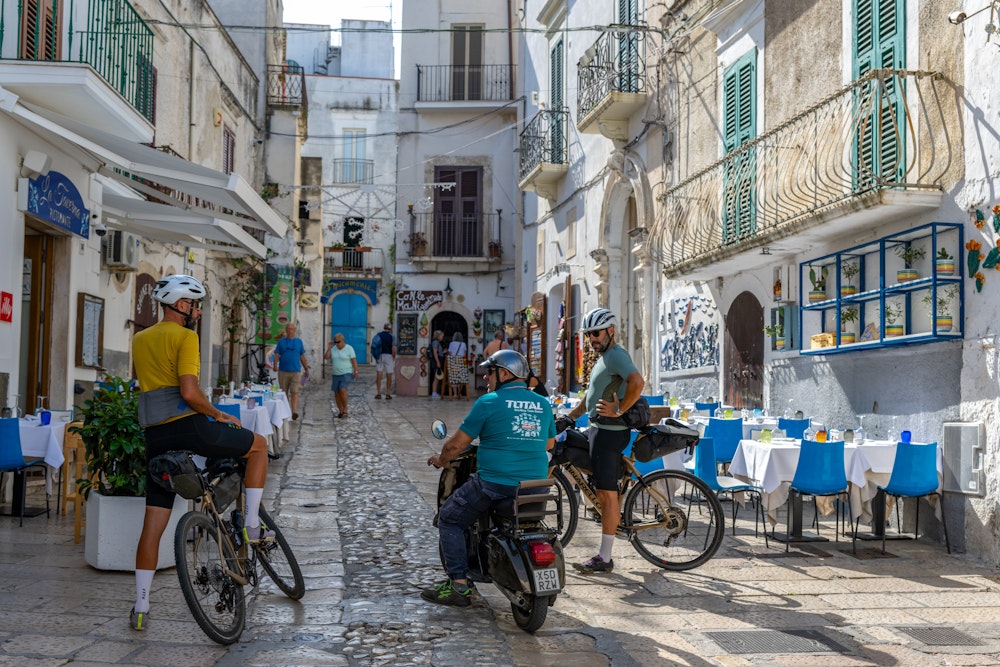
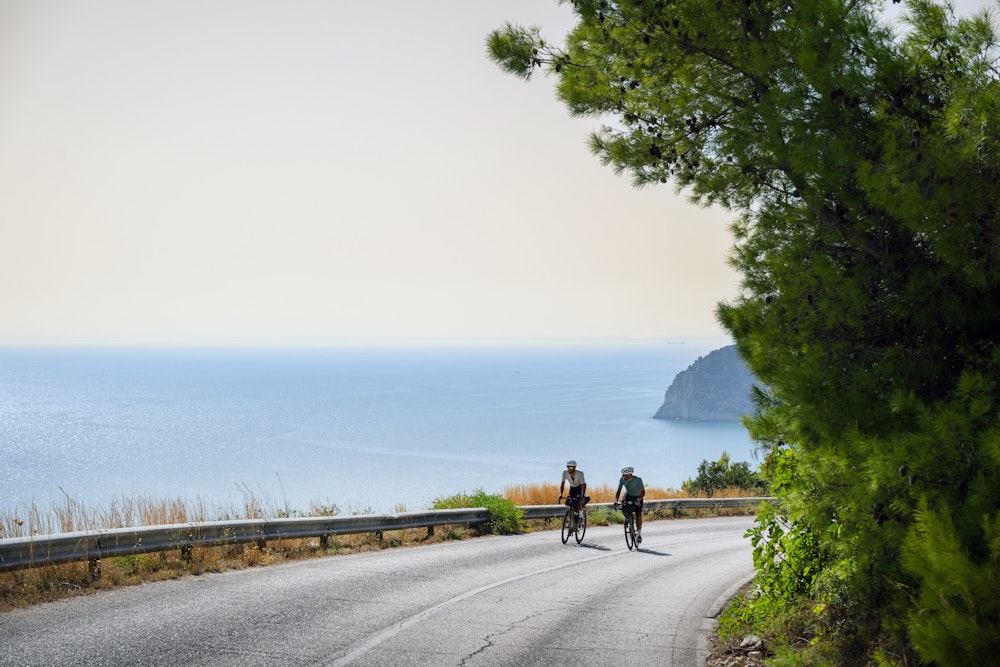
At 11.30am, three hours after the squeaking noise scene, we were still stationary in San Severo. 33 degrees Celsius. Now, let me be clear, I don’t want to create false expectations of who knows what unforeseen events, but if like me and like us you have been on a bike trip, you will have already guessed that tackling a one-hundred-kilometre stage with a midday start is not exactly the smartest of choices. Moreover, the delay was not due to who knows what strange astral conjunction. Quite the contrary. And the guy in charge of the shop’s technical department had been terribly considerate.
«Before I put you back on the road, I have to make sure there are no other problems», he had kept repeating, and so he had carried out a pad change, chain check, disc check, gasket check, oil check, electronics check, and probably, if he could, a biomechanical check to make sure we were seated correctly on the saddle. Fortunately, we managed to avoid at least that final assessment.
By 1 p.m. all three of us were finally cycling in single file under the sun of Foggia.
Hot. My God. So hot. I can’t breathe.
At 14.50 I see French turn right. The sign, at the top, reads: CINOVIA.
«What the fuck is a cinovia?».
In life I have learned that ignorance can truly be blissful. Sometimes, not knowing means less worries on your mind, a happier life. Sometimes. Maybe.
I do not know if what I read was a figment of my imagination, but my question is not answered. One, two, three, four, five and…
«Six? I counted six, right?» I shout.
French and Penni nod. They are now standing, next to their bikes.
«Calm, stay calm», they keep repeating quietly, but anyone could call their bluff.
The six dogs bark as if we had stepped on their tails, stolen their meal or taken away one of their sheep. But there’s no sheep to be seen. Yet, the dogs are pretty pissed off. Some of them try to get closer. We put our bikes between our bodies and their fangs. Our slow gait seems to calm them down… if growling and increasing the decibels of their yelping can be considered a sign of relaxation and escaped danger. We joke, perhaps so as not to panic. Six dogs is a lot.
«The Chinovi… it means dog-path, doesn’t it?» Penni suggests.
Fuck it… we should’ve known.
At about 3 p.m. we are completely soaked in sweat. The temperature has gone up again, the thermometer now reads 34 degrees. The stop in Lucera is obligatory. A cool drink, then another. I have never been able to cycle in the heat, I move like a turtle. The guys are patient and stay close to me.
At 4.15 p.m., the swear words I hear cannot be repeated.
«What’s going on?» I ask as I reach French and Penni, a little further on.
«Look», they say, nodding at the bike. A nail in Penni’s front tyre deflates the wheel in seconds. I pull out my camera and film everything. They’ll work, I’ll be the clown. It’s always like this.
5.20 p.m. We cross Cerignola with just one stop to have another drink and pump up Penni’s front tyre a little more.
Twenty kilometres to go.
I count every single metre.
We didn’t want to miss the sunset, and missed it by a long shot.
I throw myself into an endless shower that lasts three, maybe four minutes. I feel my stomach rumbling as if I hadn’t eaten in a month.
We’re quiet this evening. We’re completely exhausted. But the silence is suddenly broken:
«Really… what the fuck is a cinovia anyway?».
The alarm clock goes off precisely at seven o’clock and this time I do not give in to the lure of the bed covers. Breakfast, after the pharaonic dinner at the splendid masseria south of Canosa di Puglia, is comparable to a wedding feast. And I make the most of it. With Penni we each manage to devour four bruschette with olive oil, cherry tomatoes and melted cheese; a cappuccino for him and two cups of American coffee for me. We share and finish a delicious tart, still warm, with fig jam and, not to miss out on a bit pampering, I treat myself also to some organic white yoghurt with cereals, almonds and two drops of honey. French looks at us in horror as he drinks his coffee. I enjoy the explosion of sweet and savoury tastes and flavours. Just before the start, it’s now my front tyre that’s unprepared… flat.
«Better here than on the road».
We repair the wheel and set off.
Puglia is long. Narrow, perhaps, but above all long. This is the first thing you will learn if you have never been here. From the motorway sign marking the entrance in the region, all the way to Santa Maria di Leuca, there are about four hundred kilometres.
No, our destination is not Santa Maria, the last outpost in Puglia, but giving you this reference is necessary to make sense of the additional hundred kilometres we are travelling. But with all that food inside us we feel like volcanoes. After about thirty kilometres I see French turn left onto the state road that leads us towards the most important point of the entire journey. At least in my opinion.
Agriturism, restaurant, typical cuisine.
I read.
«But what the hell…» I comment.
I.G.P Burrata of Andria. Tastings. We’re already hooked. Breakfast has gone, our stomach is suddenly empty. Penni takes photos and laughs. French savours with gusto and licks his fingers and moustache: his goatee is white, white with burrata. The manager barely has time to explain that this fresh, typical dairy product was born thanks to an intuition of Andria’s master cheesemaker Lorenzo Bianchino, and we’ve already devoured the four burrata he’s served us. He tells us that at the beginning of the 1930s, during a heavy snowfall that hit the Murgia and Andria in particular, the master cheesemaker tried to find an ingenious way of storing and transporting the dairy products, which was becoming increasingly difficult due to the cold weather. He thought of creating a sort of protective bag made of the same paste as the mozzarella, to protect the frayed cheese, combined with cow’s cream. The intuition was brilliant, and this is how the Burrata of Andria was first created.
We’ve stocked up again. On culture and flavour.
We say thank you and with no little difficulty we continue towards our most desired half of the journey.
We are in the Parco Nazionale of the Alta Murgia, heading for Castel del Monte.
The short climb from the agriturism to the Unesco World Heritage site allows us to admire the uniqueness and majesty of this fortress, built in the 13th century. A magnetic showpiece for the entire region, Castel del Monte is full of sacredness and impossible to miss. We’d have spent the whole day here, but the road, after a few hours of sightseeing, is beckoning us again. The remaining kilometres are seventy. And today, we really don’t want to miss the sunset.
Olive trees, dust, flyovers and light conversation. Time flies and we fly along with it. Penni’s favourite pastime is performing unlikely imitations of cycling commentators. French’s favourite pastime is studying trajectories, routes and breathtaking passages. I watch them and take notes. Always learning something from one another. Life is made of small things like these.
Monotony is part of the journey, don’t get me wrong! It’s not always a fun ride. I have said this before: Puglia is long. I cycle and let the others guide me. For the first time in my life, on a trip, I don’t have to worry about anything except seizing unique moments of this unusual trio. The arrival at the farmhouse French has booked is perfect. Like an artist, Penni paints the colours of a reddish sunset on our tired faces. The images are so rich. The soundtrack is now the clinking of glasses filled with beer, taralli large and small, sweet, spicy and salty olives. Everything is perfect. Perhaps too perfect?
I want to be honest. If you have read this far, it means that we have officially entered into a relationship of mutual trust, so it’s only fair that I tell you the whole truth. I love the unexpected. The first times I went cycling on my own, I planned every little detail. But inevitably my plans were overturned. The more thorough I was, the more I ended up with my day turned upside down. And I would get very angry. I would lose the plot completely. But experience leads to greater awareness. And in the end, I came to this conclusion: you start from point A and get to point B. You’ll just have to see what happens in between. This is an idea – a philosophy, why not?! – which can very well be implemented when you are on your own, when you perhaps have time to enjoy the days and the journey itself. But when, as in our case, one has to complete a task, do a job, write an article, shoot a travel documentary and, above all, take photos, well, perhaps in this case, my philosophy should better be abandoned. Mind you, in these past few days, I’ve never felt like I had duties to carry out; on the contrary, every delay, every stop, has always been a moment to discuss plans, chat, get to know each other. But this morning’s alarm clock found me and, I dare say all of us, completely unprepared. «Jeez, it hurts… down there. Ouch, ouch…» whispers French as he slowly puts his coffee cup down on the bedside table.
«This is going to be a problem», he adds.
It’s 7.50 a.m. I look at Penni, «What’s going on?» I ask him.
«Francescutti’s kidney system is not working perfectly,» he smiles, «sounds like his kidney colic»
Time to call an ambulance.
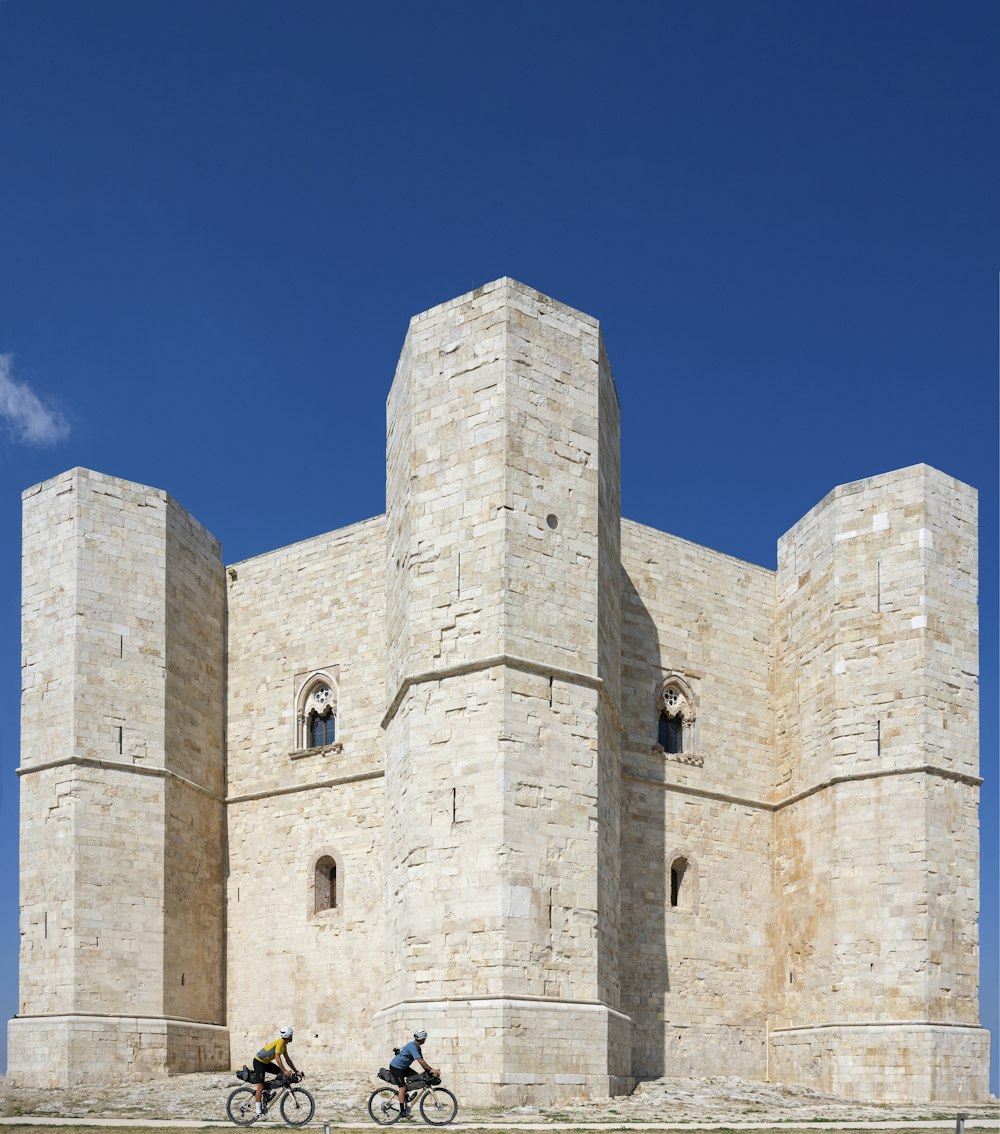
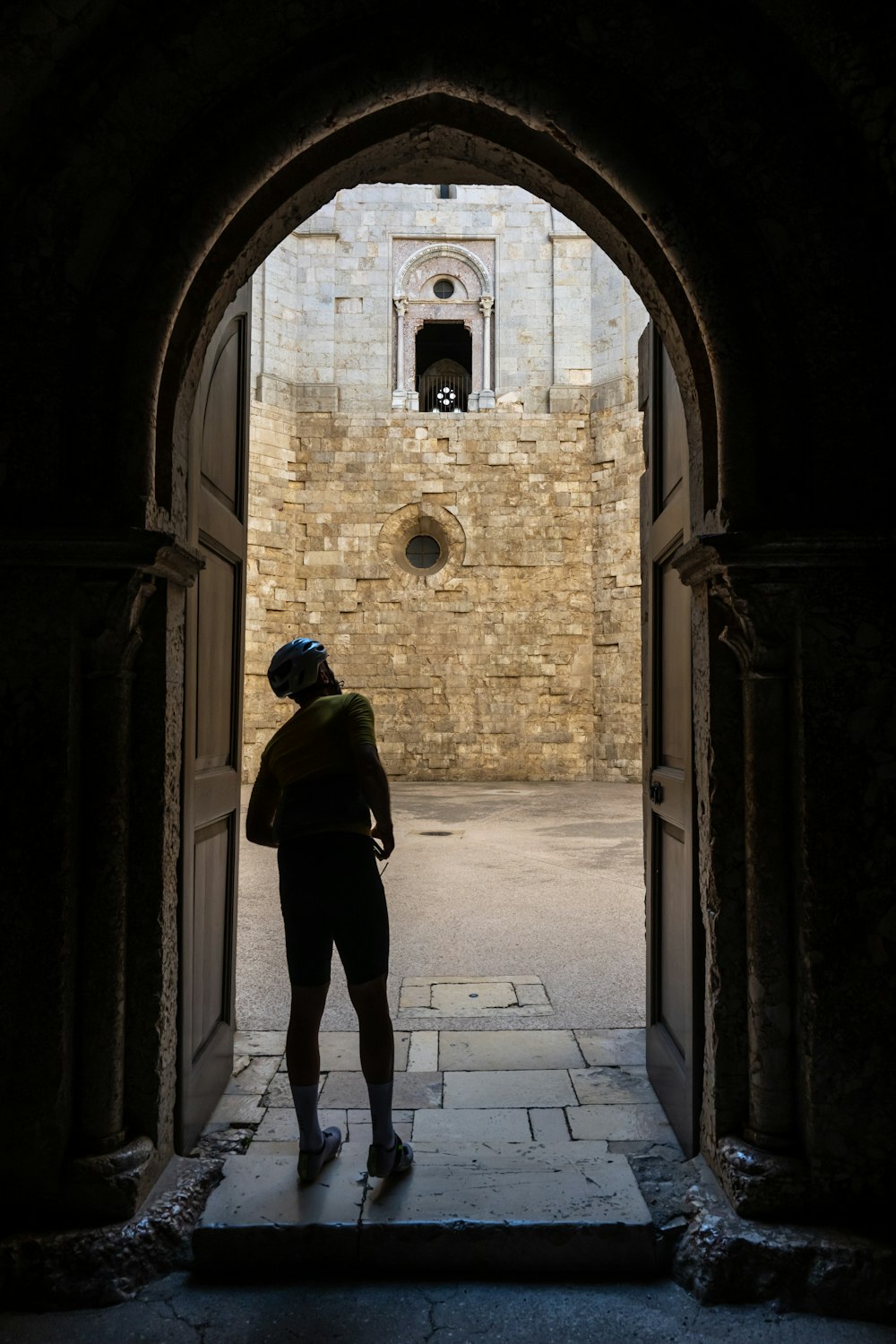
French’s moans do not subside, we become more and more worried. In such cases, the only option is to stuff yourself with painkillers and hope it will go away, at least momentarily.
The trip might really be compromised. The photos, the adventure, the good wine, the focaccia. All gone. Now all we do is worry about Stefano.
It’s about 8 o’clock when I wave goodbye to the ambulance that my two companions have boarded. The doctor didn’t want to take any chances and decided to have French hospitalised for some more exams. Obviously, Penni followed French to the hospital. I am alone here, on the farm, trying to figure out what to do. Then, the only real option. I set off for the next stage. Some way or the other, we’ll meet up again in Brindisi.
One hundred and fifteen kilometres.
Olive trees, bumpy roads, climbs and descents tackled with the rest of the team on my mind.
I spend ages cycling, constantly looking at everything around me, in front, behind and to the side. Then the silence is broken. A Whatsapp audio message. It’s Penni. He says that French is well, that he’s done all the necessary check-ups and that he is ok for now. No good pretending to be sick when the pain has gone, he wants to set off again: «Wait for us, or slow down. We’re coming.»
I can’t believe it, and I’m very happy. We meet in Ceglie Messapica when it’s already afternoon. Not too bad: my legs are working nicely, thanks in part to the many Ceglie biscuits I’ve munched on while waiting for my two companions. We are about to touch down in the southernmost province, Lecce, before finishing in Brindisi this very long day.
The pasticciotto at breakfast is the perfect reward for a day we’ve already set aside. Custard and shortcrust pastry. I share it with Penni, while French drinks his coffee, sitting on the seafront in Brindisi. In front of us, the sun, the sea and the wind, or lu sule, lu mare e lu ientu, as they say in the local dialect. I learn that Brindisi is one of the twenty most popular digital nomad destinations in the world, which means it’s a perfect place to come to for remote working. I give it a thought, but it might be difficult to convince my colleagues at the radio station.
We set off again, leaving the Monumento al Marinaio behind us, its helm shape easy to make out over the town’s harbour. Penni asks us to take a few photos on the scalinata Virgilio, a few metres away from the café where we had breakfast. This is the site that marks the end of the Via Appia, the main communication road between ancient Rome and Brindisi. It is called Virgilio’s staircase precisely because Publius Virgilius Marone, the author of the Aeneid, died in Brindisi in 19 B.C. on his return from Greece.
The wind, or rather, Lu ientu, is blowing and this morning we are all wearing jackets. The sea breeze has lowered the temperature by at least ten degrees.
We are finally travelling in my comfort temperatures. After about twenty minutes, we head for isola di Sant’Andrea. We are really just a stone’s throw from the airport and the continuous roar of planes taking off and landing is the only sound mingling with the roar of the waves. We take a few photos in the area of the old lighthouse. In the background, the Castlello Alfonsino.
We get back on our saddles, heading north-east. The sea to our right cuddles us and tries to distract us from the mistral, which at times is in our faces and at times tries to knock us over with gusts blowing form the side of our sprockets. The cycling is uphill, but never too severe. Having left the coast, we tackle gradients of no more than 8%. We are so jolly and feel so good that we pass Ostuni, Cisternino and Locorotondo quite leisurely and arrive in the Valle d’Itria. We admire the sunset in the magnificent Alberobello. I know this other jewel in the crown of my region very well: for years it was the destination of Sunday outings during my childhood. Also declared a UNESCO World Heritage Site in 1996, it has become a unique tourist destination and in some ways representative of the whole of Puglia. Why? Everyone has to see the trulli at least one once in their life. If you haven’t, you must catch up as soon as possible. The typical cone-shaped roof covered with grey tiles, the white colour tinged with orange and red just as the sun goes down is truly a joy to behold.
Used in the past as dwellings for the peasants, they have become so distinctive that they attract visitors from all over the world. Some have been converted into accommodation for tourists, while retaining their original structure. It’s in a trullo that we will sleep tonight, on the penultimate evening we’ll spend under the same roof.
The interior is very intimate and cosy. Illuminated by very few electrical lights, for the rest we can rely on elegant candles. The double bed is right in front of the entrance and French will sleep there, while Penni and I are moving upstairs. To get up there, there’s a wooden staircase, standing almost perpendicular to the floor.
«I used to go up and down that ladder every day», a voice interrupts us. It’s Signora Maria, our next-door neighbour. She lives opposite the trullo we are staying in. She sits in the shade, behind the brown, maybe beige, wicker curtain. Her wrinkled face is barely distinguishable. She smiles as she tells us that she is the owner of that trullo and that her whole family, seven siblings plus mother and father, were born and raised there. She moved for a short time of her life «to Padua, near Switzerland», only to then return home. Yes, that’s right: «in Padua, near Switzerland». All true. She’s adorable.
If we were looking for deep dive in the local culture, here we have it. What was the first commandment of Destinations 2023? Ride with the locals? For this year’s I would add: talk to locals, especially when they have a lot of wrinkles on their faces. Not only when you travel, but in life in general.
There is a bit of melancholy when a journey like this is coming to an end. At the beginning of this adventure, the idea of getting lost in my own homeland seemed silly and inappropriate, to say the least. Cycling on roads I know so well didn’t seem like much of a prospect, but now I finally understand, after all these years, what Proust, or whoever, had to say about «having new eyes». I’ve never travelled in group because I always felt that I wouldn’t be honouring the road, the route, the people I met along the way. But doing it with kindred souls, has a more intense, more genuine value and flavour. Like the strascinate we devoured for dinner in Alberobello last night or the friselle with olive oil and fresh tomatoes. The last stage from Alberobello to Bari is all downhill. In the true sense of the word. Sixty-five kilometres of laughter, teasing, memories and wonderful photos. A stop at Polignano a Mare is a must after leaving the hinterland and heading towards our starting point, which brings the tour to a close. The wind is on our side, the road is clean, the asphalt fit for a Giro d’Italia. Polignano never lets you down. The cliffs, the houses overlooking the sea. But it’s Bari, of course, that honours us with the best welcome.
As soon as we arrive in the area of the old port, we stop for a beer at the little bar right at the end of the fish market. French tastes some very fresh seafood. Still holding our beers, which have taken the place of the water bottles, we head towards the Arco Basso, the access point to the most authentic part of Bari, Bari Vecchia.
Slowly cycling through the alleys immerses us in an atmosphere that's ancient, yet so elegantly requalified. The whole area was inaccessible during my teenage years and has now been cleaned up. It’s all too easy to get caught up in the crowds of tourists intrigued by the many ladies kneading the dough and with strong, working hands, making the oldest of traditional dishes: orecchiette. But it’s at the final stop that we find the consecration of the entire expedition: we make toasts while sitting in the alleyways, munching on the marvellous panzerotti. What more could you wish for?
I am happy to have found this new Puglia, to have found these new faces, that as of today I consider to be the faces of new found friends.
How about we start again?
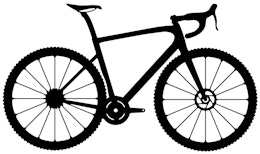
Bike type
Gravel
* informazione Publiredazionale
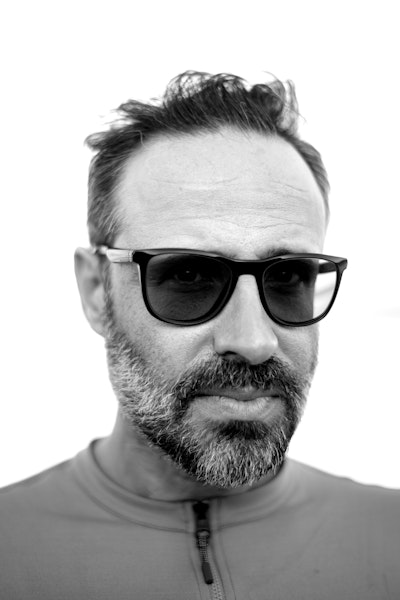
Texts
Francesco Frank Lotta
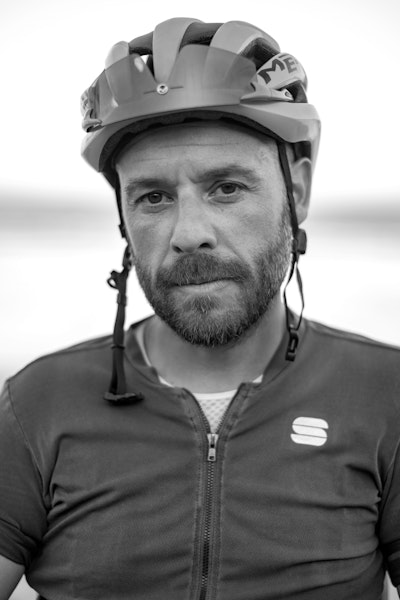
Photos
Paolo Penni Martelli
Cycled with us
Stefano Francescutti
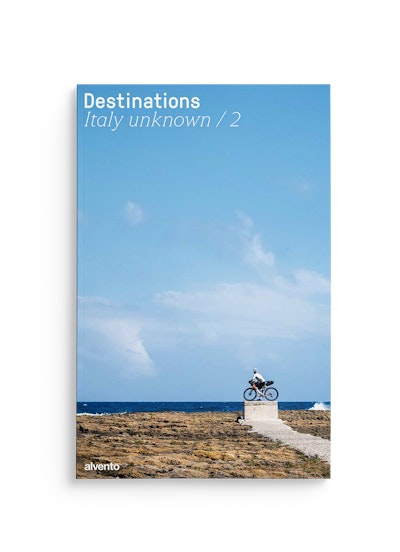
This tour can be found in the super-magazine Destinations - Italy unknown / 2, the special issue of alvento dedicated to bikepacking. 12 little-trodden destinations or reinterpretations of famous cycling destinations.
